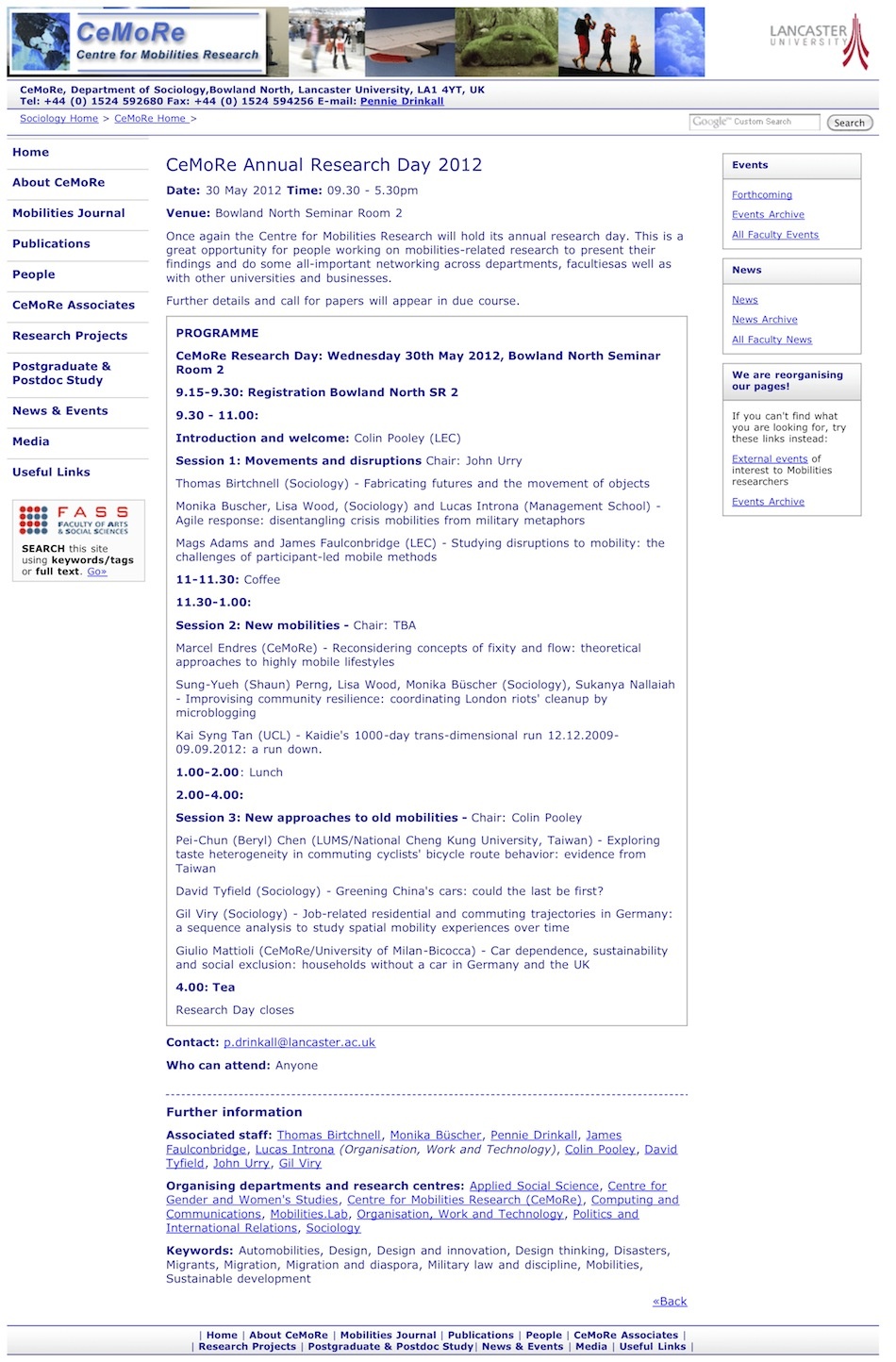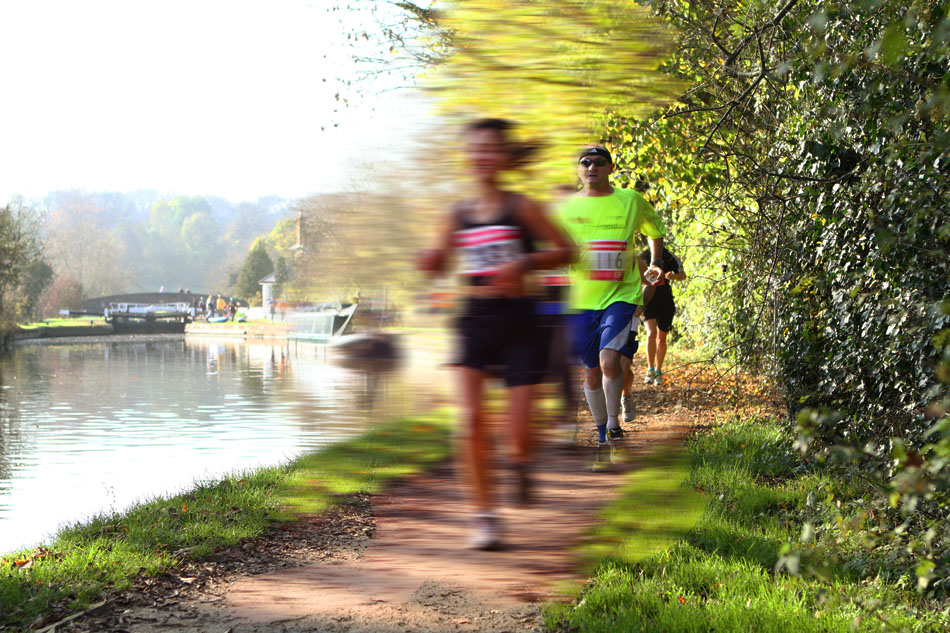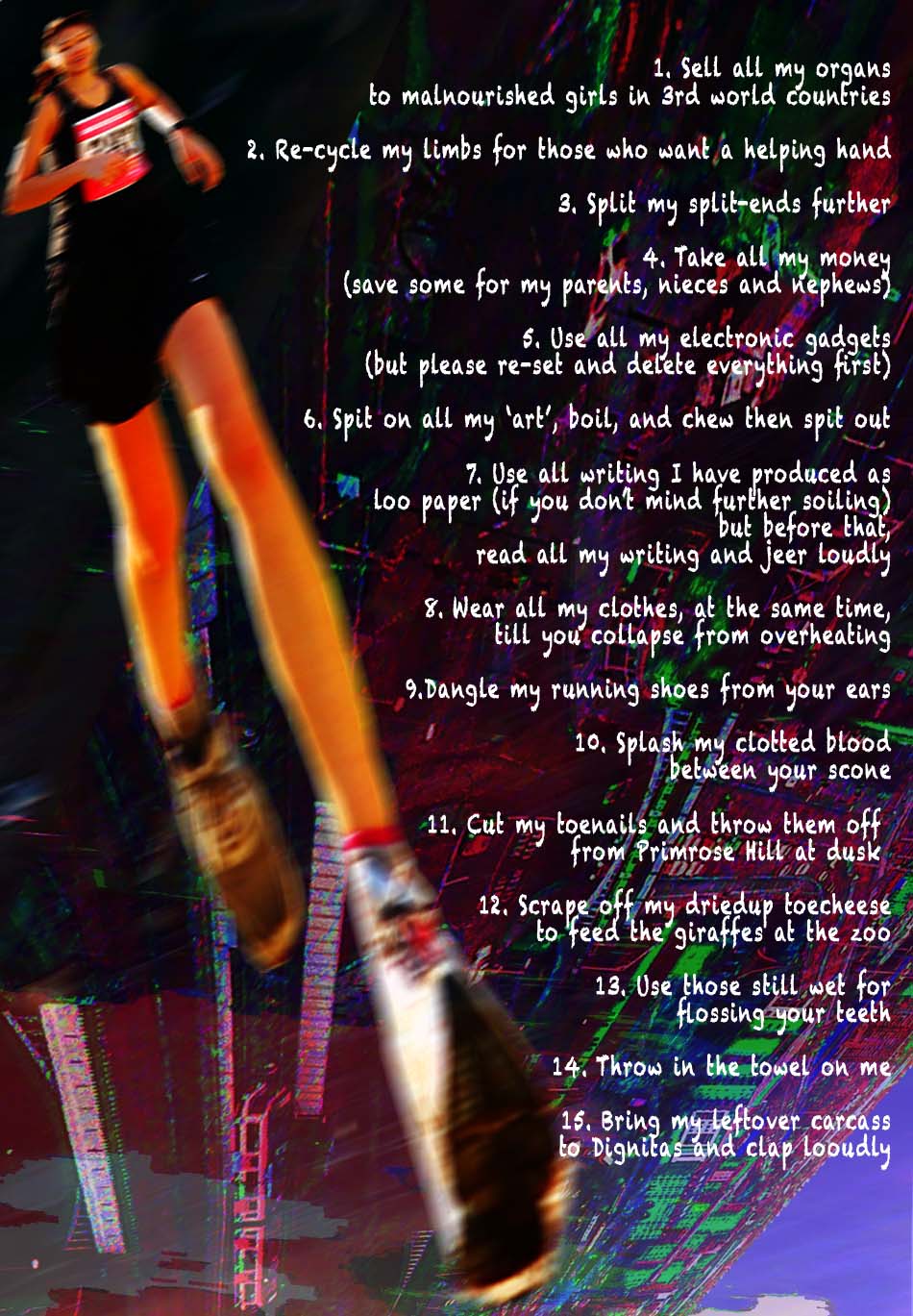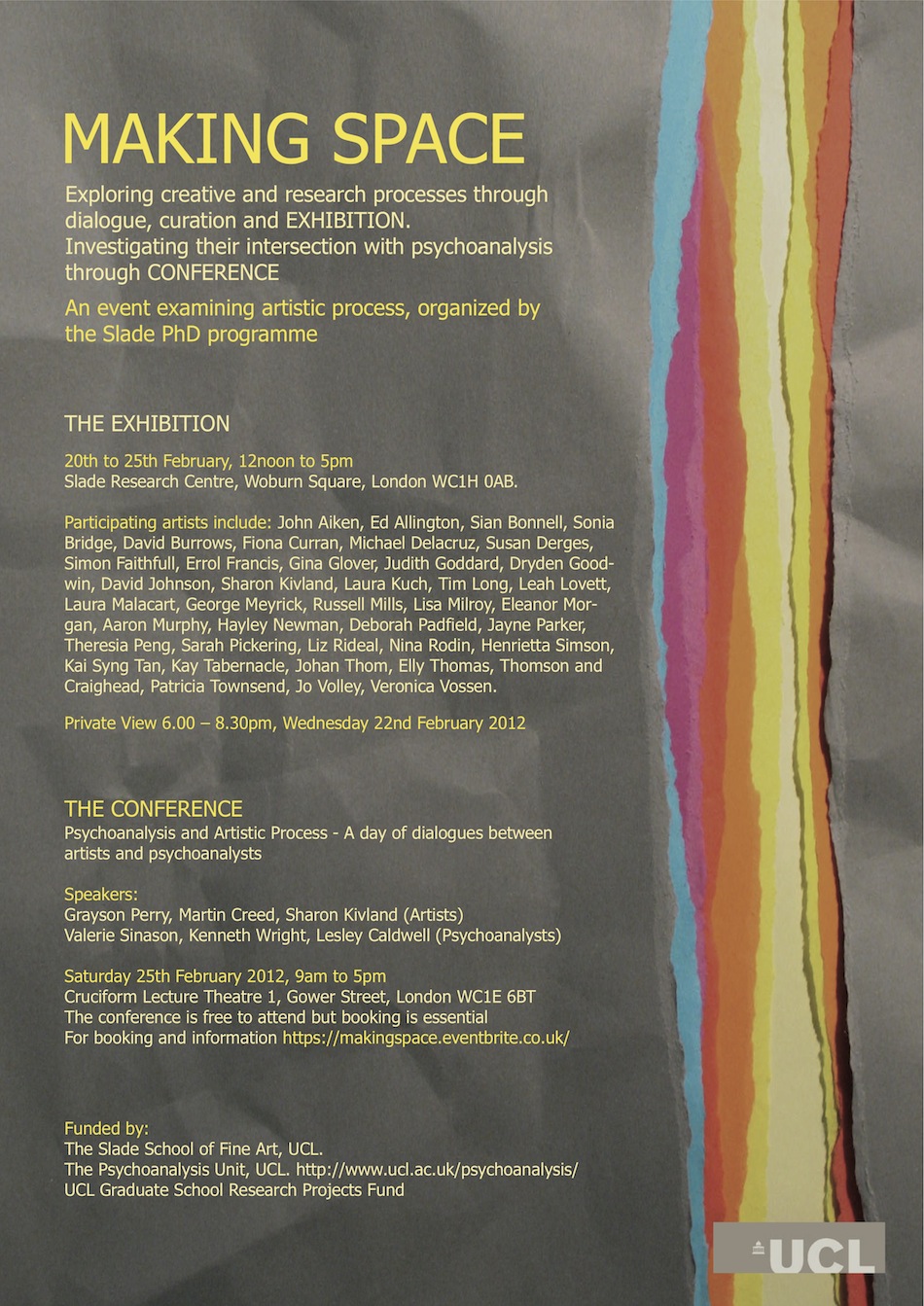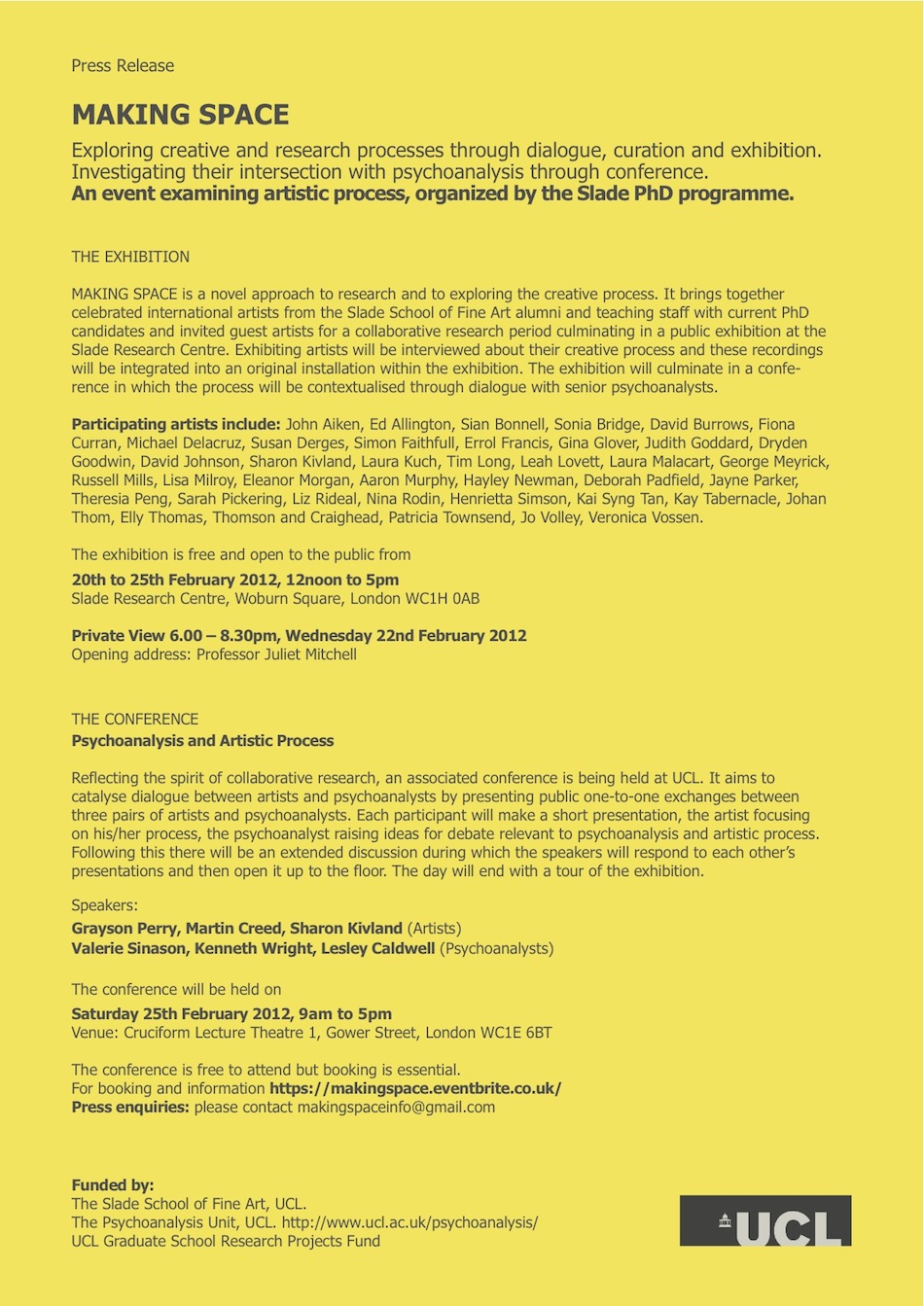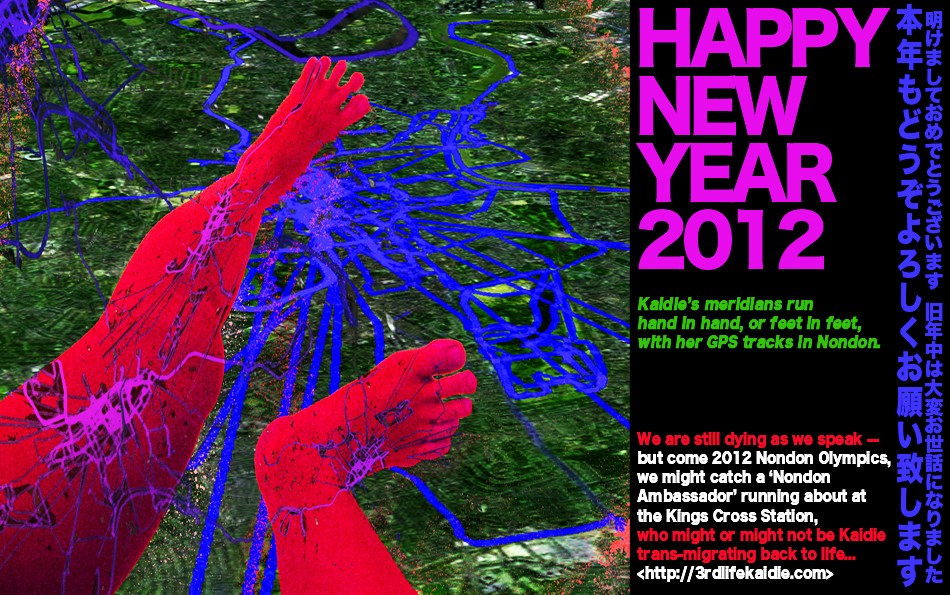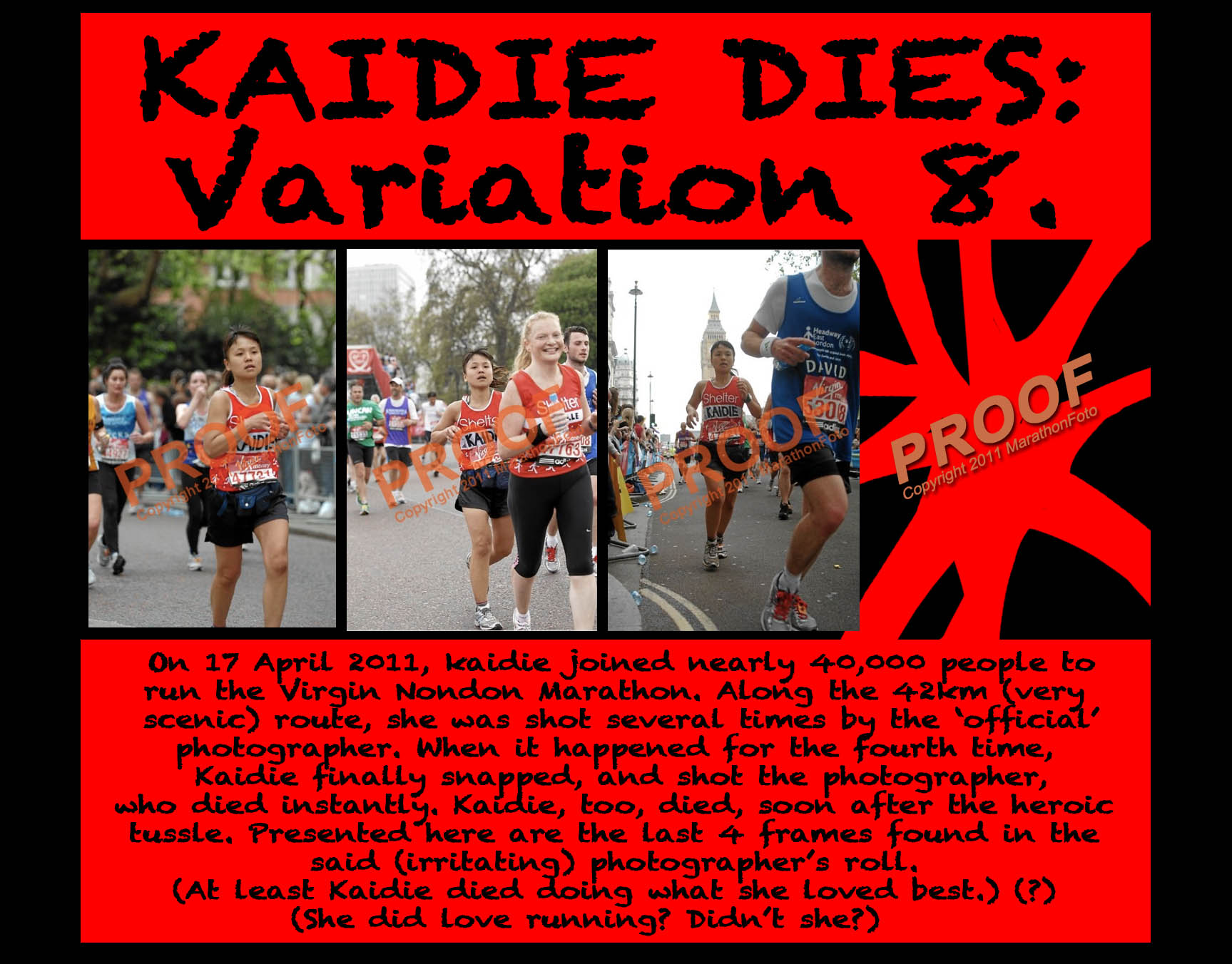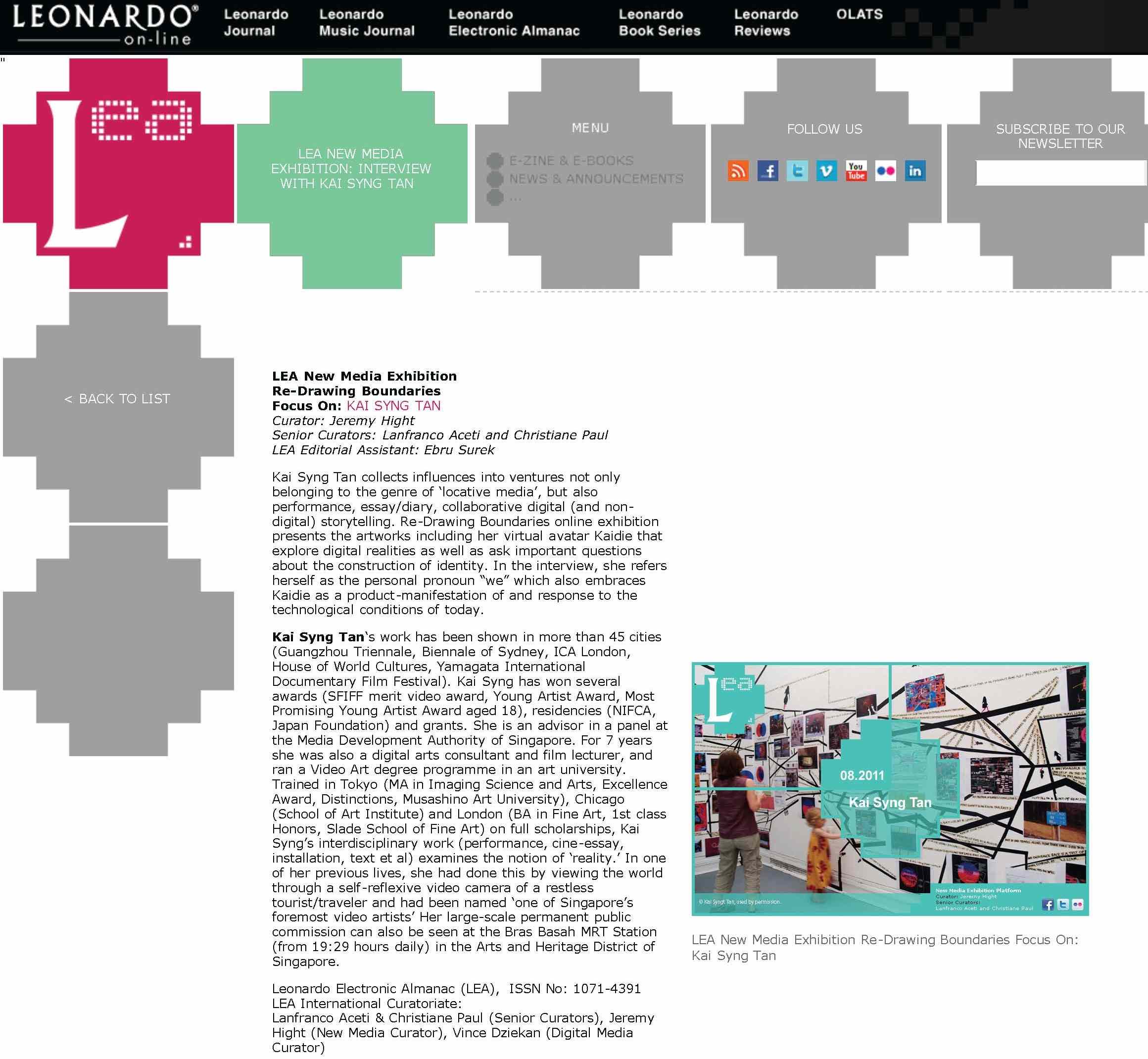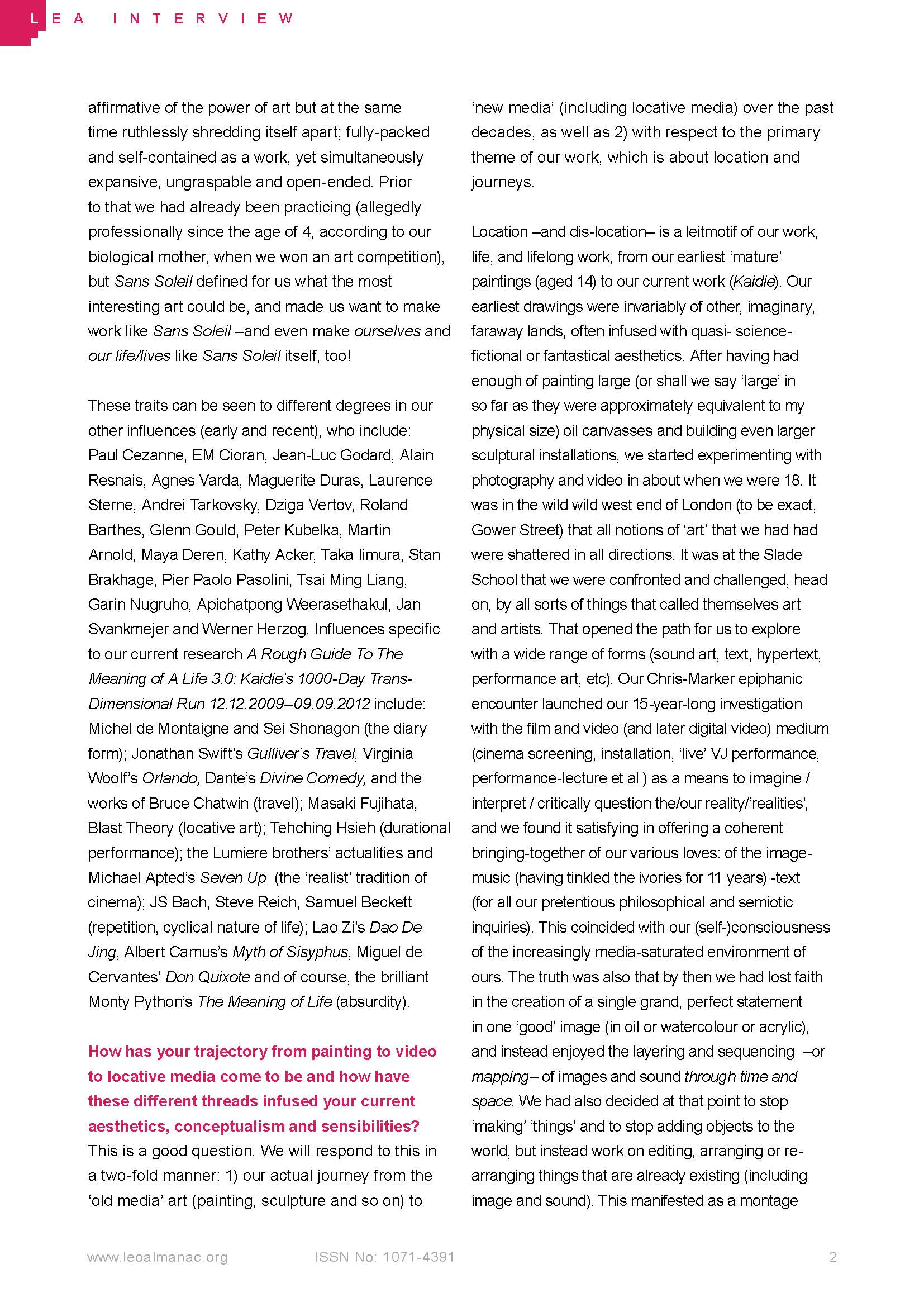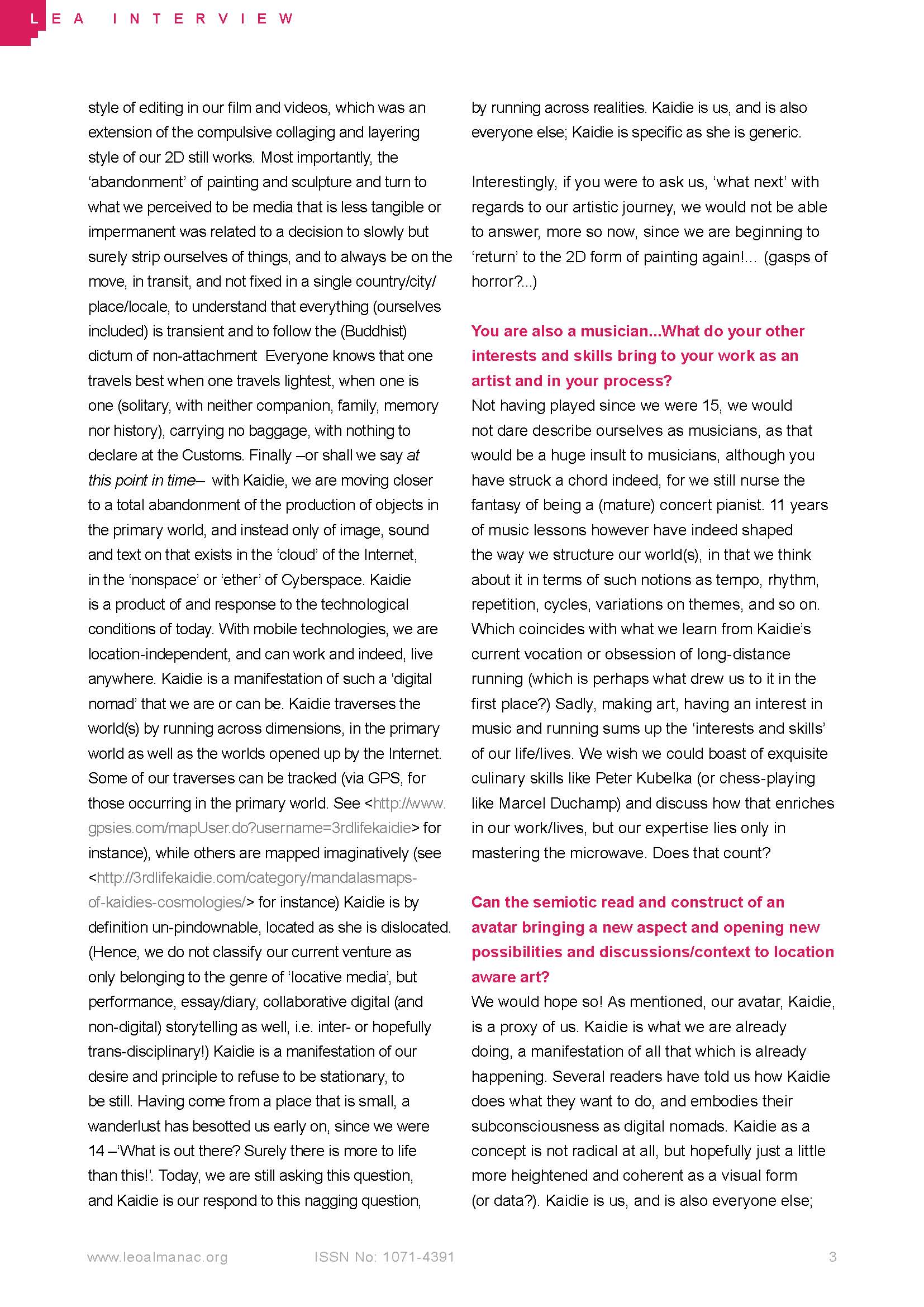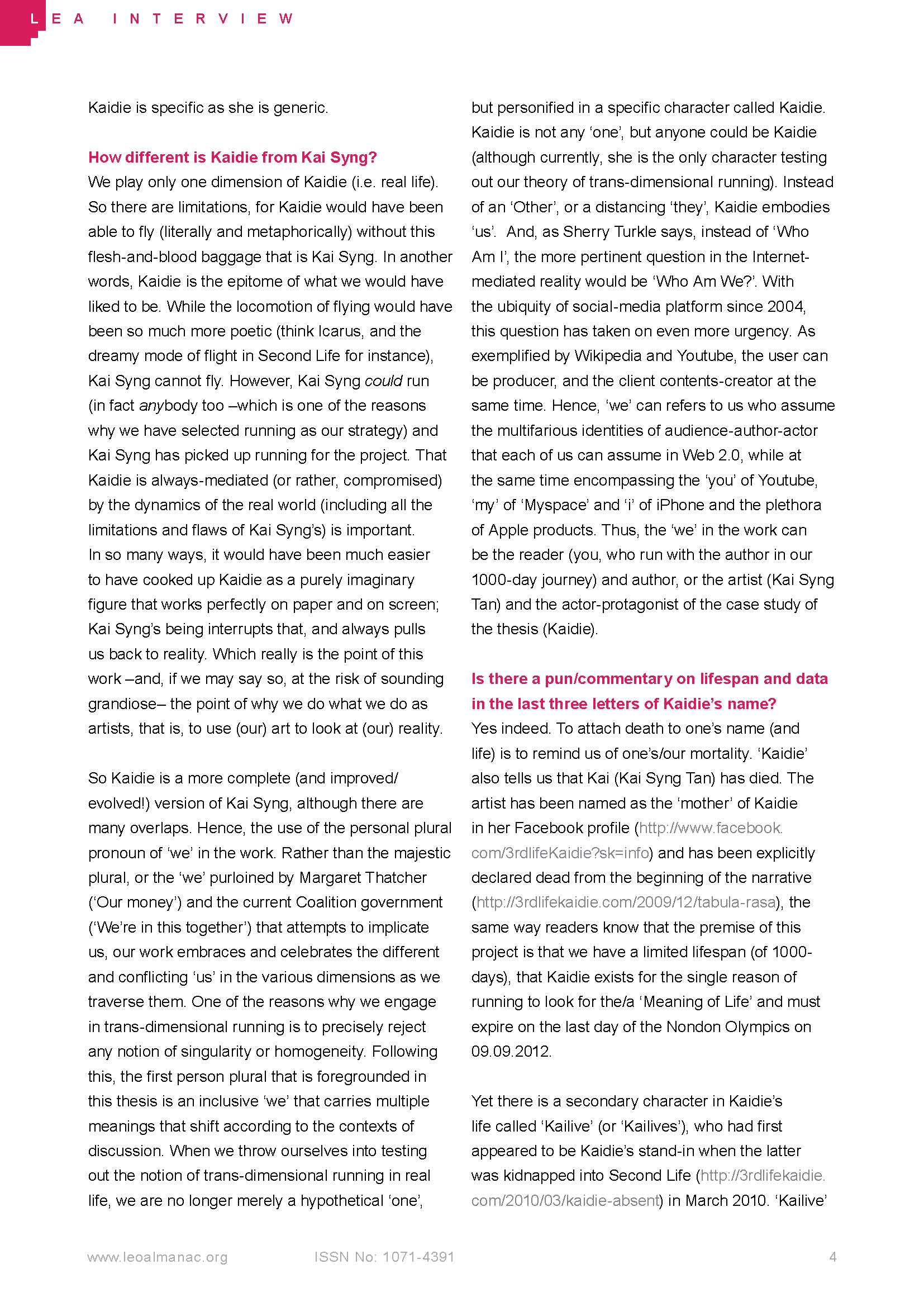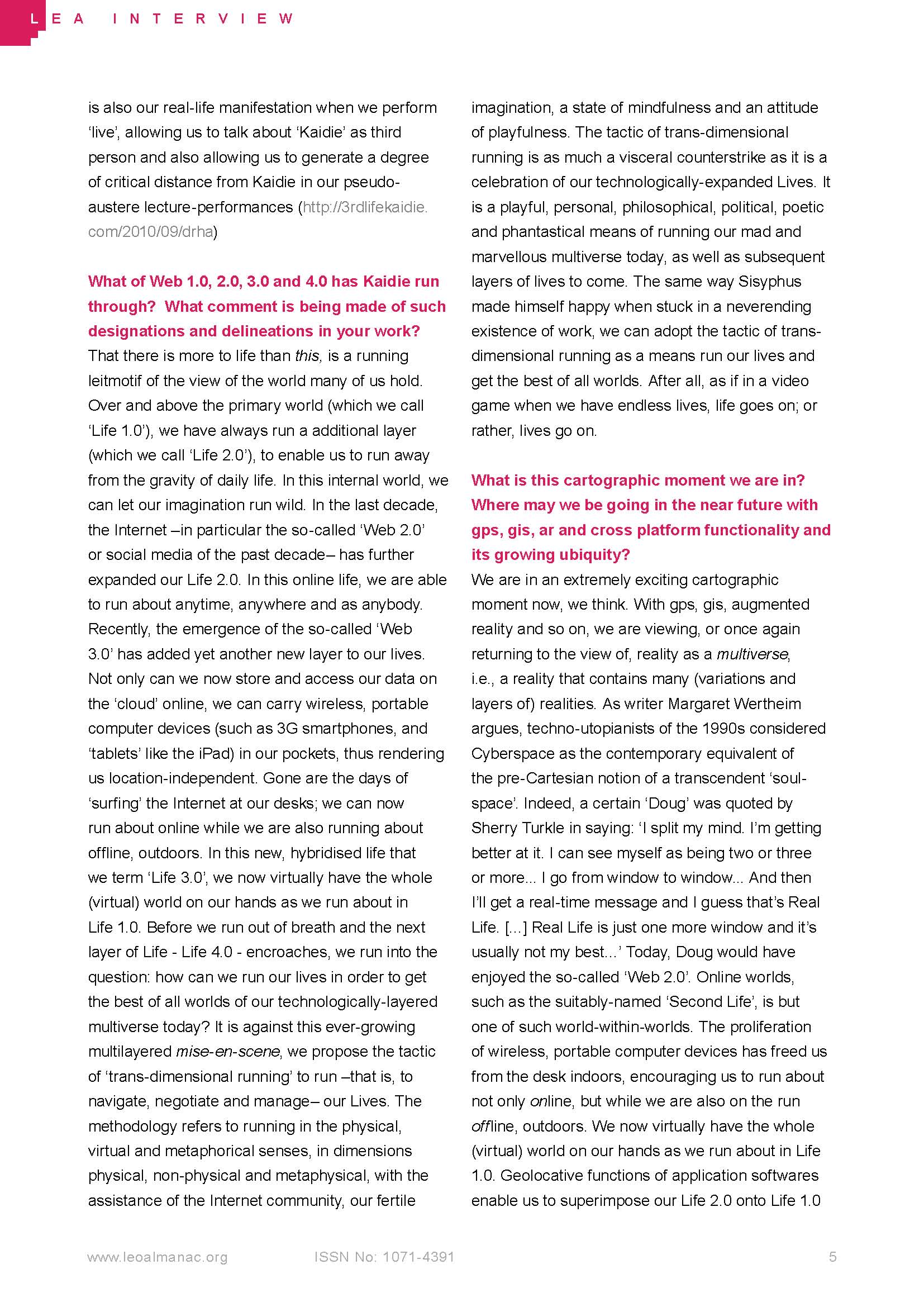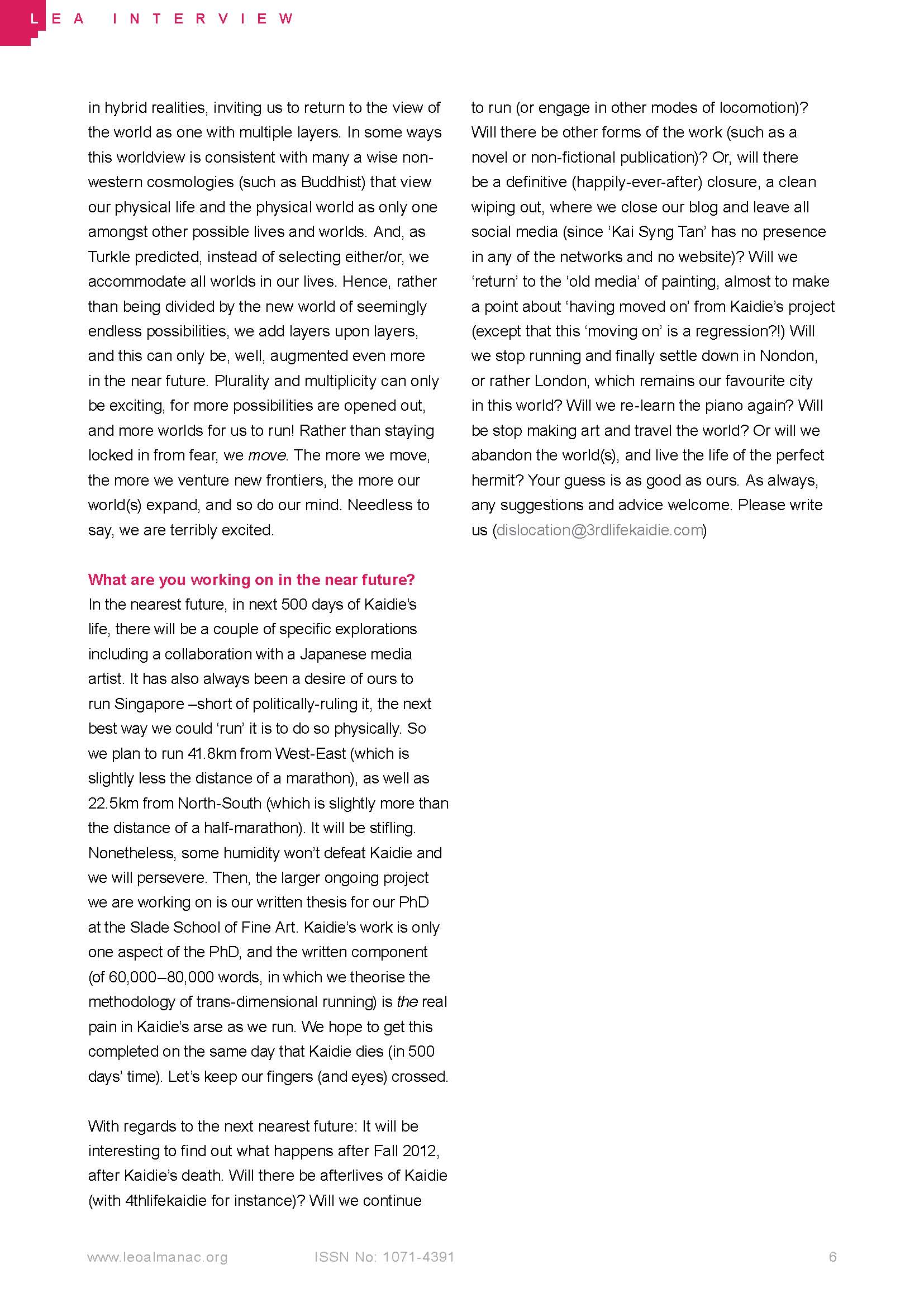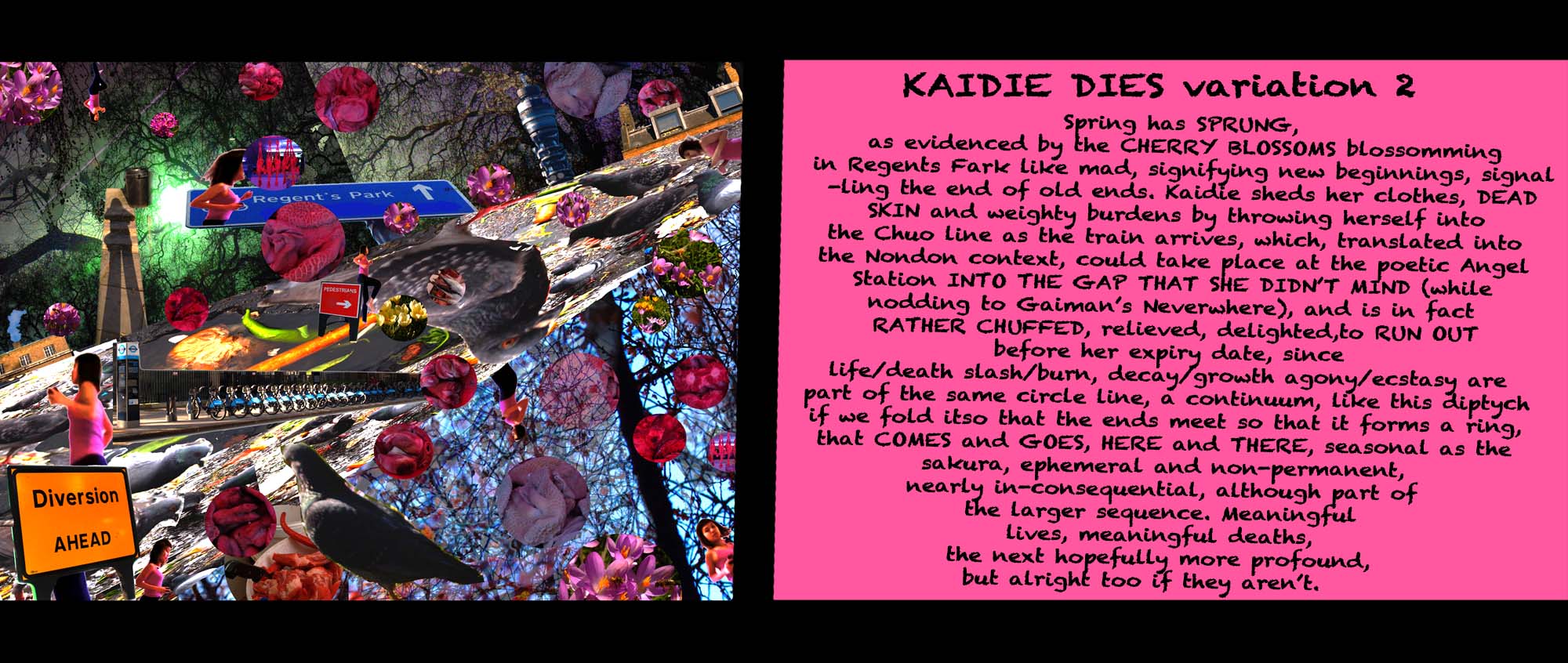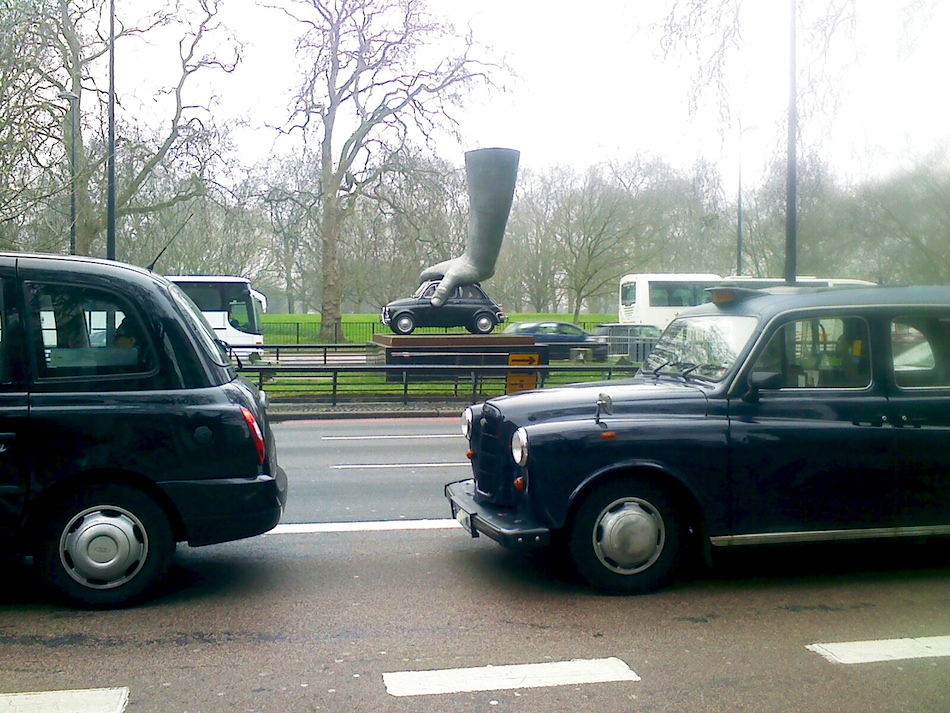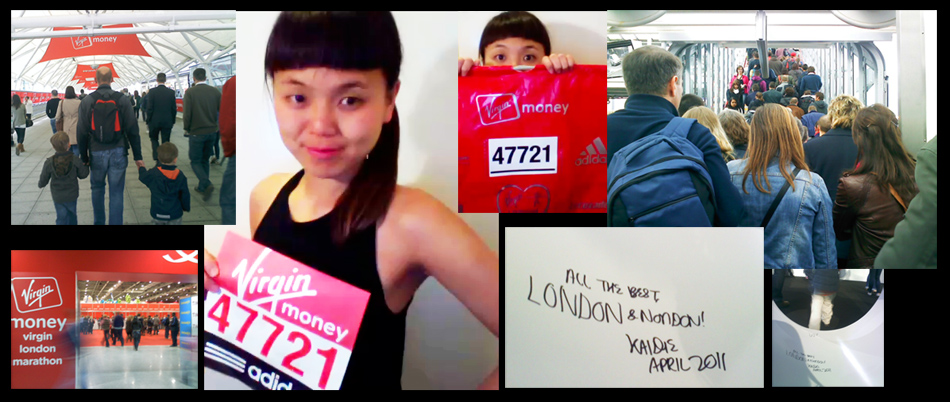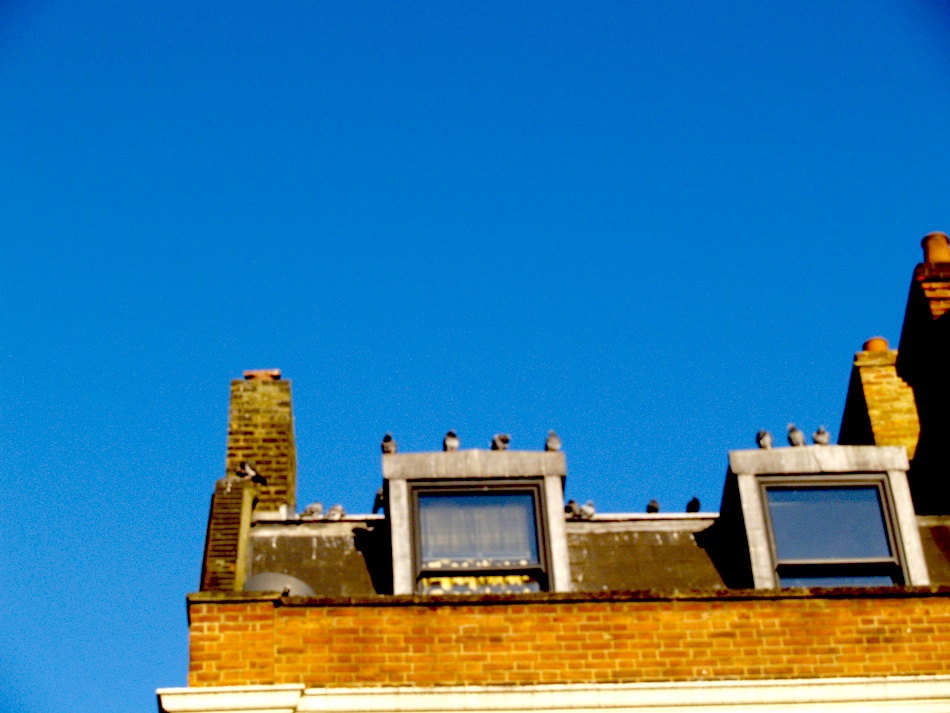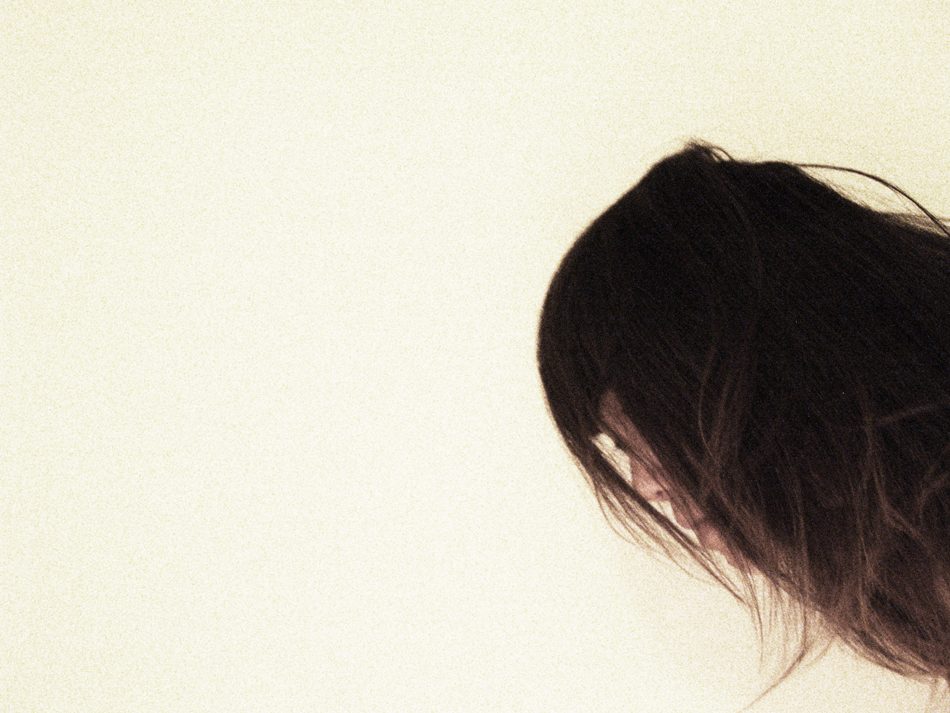**2012 May 30: Recorded version of performance-lecture at the Centre for Mobilities Research, Lancaster University**
This is a recorded version of a performance-lecture presented at the Lancaster University’s Sociology department’s for Centre for Mobilities Research Annual Research Day, 30 May 2012. Present at the session was the Distinguished Professor John Urry. Professor Monica Buscher made 3 inspiring presentations. The conference was hosted by the wonderful Professor Colin Pooley. Music, as usual, by the indefatigable longtime collaborator Philip Tan.
KAIDIE TRANS-MIGRATING? 5
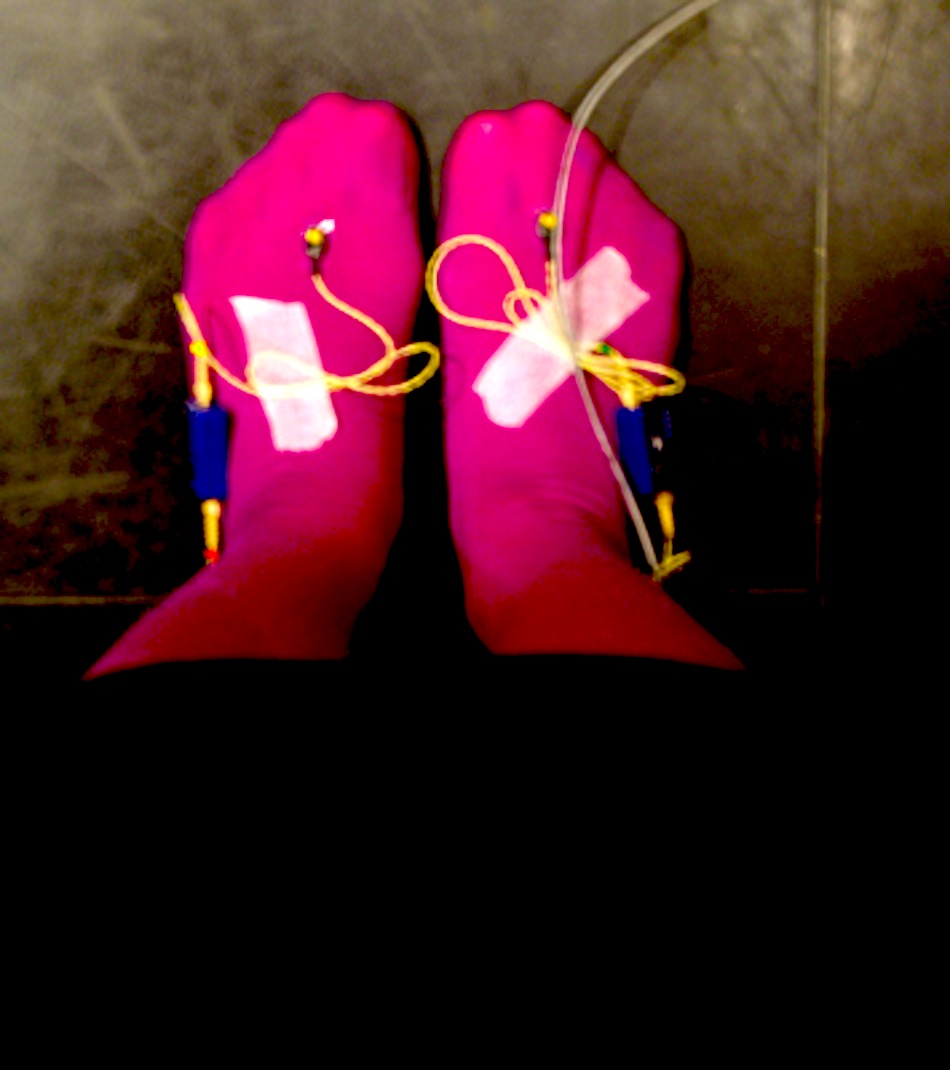
Cabled-up, taken a deep breath, pink-socked, wobbled, ready to take off, to re-turn, to life, on earth. Thummmmpppppppppppppppppppplunginggggggggggggggggggggfreefalling.................. (tbc)
KAIDIE TRANS-MIGRATING? 3
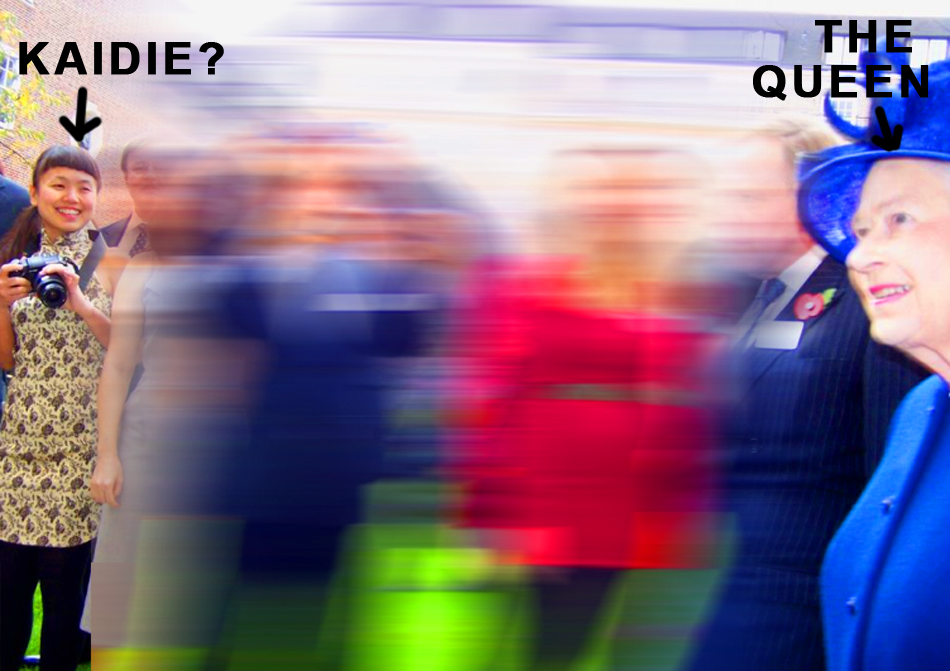
With the Queen's Diamond Jubilee around the corner, Elizabeth is often sighted here and there in one form or another.... and so can Kaidie, who also seems to be around the corner (of this snapshot). If so, Kaidie's proved to be the opportunist once again - having previously died for shots with the Wondrous Grayson Perry and Ken Livingstone. To be continued...
If Kaidie comes back from her death and performs in front of SOCIOLOGISTS, who will be more scared?? Who will run off first?
- This page has been plagiarised from the Lancaster University’s Centre for Mobilities Research’s (CeMoRe) site which you should visit, especially if you can’t come and join us in the scary affair.
** The Creative Process of Running: A 22-minute Discourse (2012 January 25) ** (Happy deathday, 1 year on)
This is a 22-minute discourse on how the process of running – physically and metaphorically – can be creative.
Several of the points in the first part of this work (on how running physically can be creative) have been inspired by the points raised by Dr Alan Latham in his lecture The Zen of Running. You can learn more about the geographer – and hardcore runner – here.
A presentation of this as a slide show was first held on 2012 January 25 at the Slade School of Fine Art, University College London, and exhibited as a video at the Making Space PhD exhibition at the Slade Research Centre at the Woburn Square, February 2012. As with all uploads, this is an ongoing research and subject to change. For more of such inconclusive ‘moving images’, run to Kaidie’s channel.
KAIDIE DIES: Variation 16 (Happy Aprilsss Foolsss)

Discovered buried alive and burdened to death under layers and layers of her compulsive hoarding of mappings. Every mapping is unique; each mapping is capable of yet more mappings. There's simply no bleeding end to it because everything is connected to everything else. Huffed and puffed, overloaded, hence Kaidie kabooms, has a headache and heartburn and cold sores and piles under all these piles, implodes, as a rather happy April's Fool, smiling.
** You are invited to the Private View of the Making Space Exhibition 22 February 6-8:30pm WC1H 0AB**
While Kaidie remains dead, she may well conjure up a thing or two at this annual PhD event at the Slade School of Fine Art’s Research Centre in Nondon, UK. In any case, many other artists are involved in this exhibition Making Space, including a few big names. You are invited to the PV on the 22nd, and if you have already acquired tickets for the conference on the 25th, count yourself very lucky. The rather delightful Grayson Perry will be speaking – having caught his very wonderful exhibition at the British Museum recently, coming face to face with the great Perry may well be the impetus for Kaidie to stop playing dead and come back to life.
**2010 December performance-lecture at the Slade School of Dine Art**
Yes we are still rather dead. So here is a mini-retrospective of sorts.
This is a performance-lecture held 2010 December 1 at the Slade School of DIne Art, Nondon, UK. In the ‘live’ version, we would be reading the script ‘live’; in this recorded version, you can hear us (flipping the pages of the script).
What is crucial to note that, all this was so (very nearly) impeccable and mindblowing at that point in time, ie 2010 December 1. Yet, restless beings that we are, that you know we are, this is not fixed in stone (is any? Even stones are not fixed [in stone], for they move, do they not??). We have (clearly) moved on, specifically, improved, in leaps and bounds of course. As you know we are simply incapable of producing anything run of the mill, but evolution-believers (and practitioners) that we are, many of the points raised in this performance have shifted, and many of the imageries have also been transformed. For ever-newer-better-higher-faster-good-better-best rundowns/out-lines/maps/cosmologies and other configurations, come back here often though even that can be slower than what we think while we are on the run etc etc. And, we all know that there can never be a ‘final’ version – even as we reach the ‘final’, for, so long as our stamina (speed and endurance) lasts, we will keep on running.
And the more we run, the better we can run, the further we can run. So, each variation is as ‘final’ as they get.
Point is, run, and you will find your own way. Or rather, ways. So, there you go. Here we are.
This performance-lecture was undertaken as part of our MPhil upgrade to PhD status at the Slade School of Dine Art, University College Nondon, UK. The opening and closing musical accompaniment is created by our usual Co-Runner, PHILIP TAN
** GOODBYE 2011, HELLO 2012**
Hello there!
We hope that you have had a fruitful 2011 as we have. Thus far,
1) … approximately 475,000 unique visitors have (allegedly) visited our running blog since 12.12.2009
2) … in our search for the/a ‘Meaning of Life’, we have run at least 6000km in the past 750 days in the primary world, including having completed 2 fool marathons (Nondon, Farnham Pilgrims), 2 half marathons (Safra Bay Run, Uxbridge Grand Canal), as well as other smaller races (Friends of MSF, PAssion), while raising some money for charity along the way (many thanks to many of you who had responded to our emotional blackmail!)
3) … we have made nearly 2500 ‘friends’ on Facebook, including turning some of them into wondrous collaborators (such as Jeremy Hight, who curated us on an online exhibition on Leonardo Electronic Almanac; James Odling Smee who baked us a heart-stoppingly-mind-shifting chocolate cake that sent us on the mostest moistest magnificently heavenly sugar-high; Chico (a many-pawed cat owned by Anji Reyner) who has just passed away from real life, and who is now accompanying us on our astral runs…
… Indeed, we have been dead since 24th of April, when Kai Syng reached her Chinese age of 37, which was a week after Kaidie hit 4:24:37 at the Nondon Marathon 2011. Yet, there is no stopping us from coming back to life (or is there?)! How, indeed, will we spend the final 250 days before we finally hit the bucket on 09.09.2012, on the last day of the Nondon Paralympics? Will we catch Kaidie impersonating a 2012 Nondon Ambassador at the Kings Cross Station come Summer 2012? Before that, will we catch someone who resembles Kaidie as a Cultural Bloomsbury guide on the topic of Art & Society, and running the Bath Half Marathon, KNI Waltham Forest Borough Run, and a midnight sun run in Norway? And, last but not least, will we finally find the/a Meaning of Life? … Boundless questions abound…
Come run our last laps with us.
Happy New Year 2012.
Yours Sincerely,
Kai-die
** KAIDIE MOMENTARILY RISES FROM HER GRAVE ON 1 AUGUST 2011 IN LIFE 2.0 ON LEONARDO ONLINE **
Kaidie has been momentarily woken up from her ongoing death on 1 August, with her participation in Re-drawing Boundaries, a LEA New Media Exhibition online. And it is completely the fault of curator-artist-writer-theorist-photographer-musician-weathernerd-cat-dad-all-rounded-all-rounder Jeremy Hight (whom Kaidie is acquainted with only via the evil Facebook). Hight’s senior conspirators are Lanfranco Aceti and Christiane Paul. Do visit the show and experience other locative media works by Teri Reub, Jeremy Wood amongst others! Kaidie thanks Hight, Aceti and Paul, and returns to her astral journeys.
KAIDIE DIES: Variation 5.
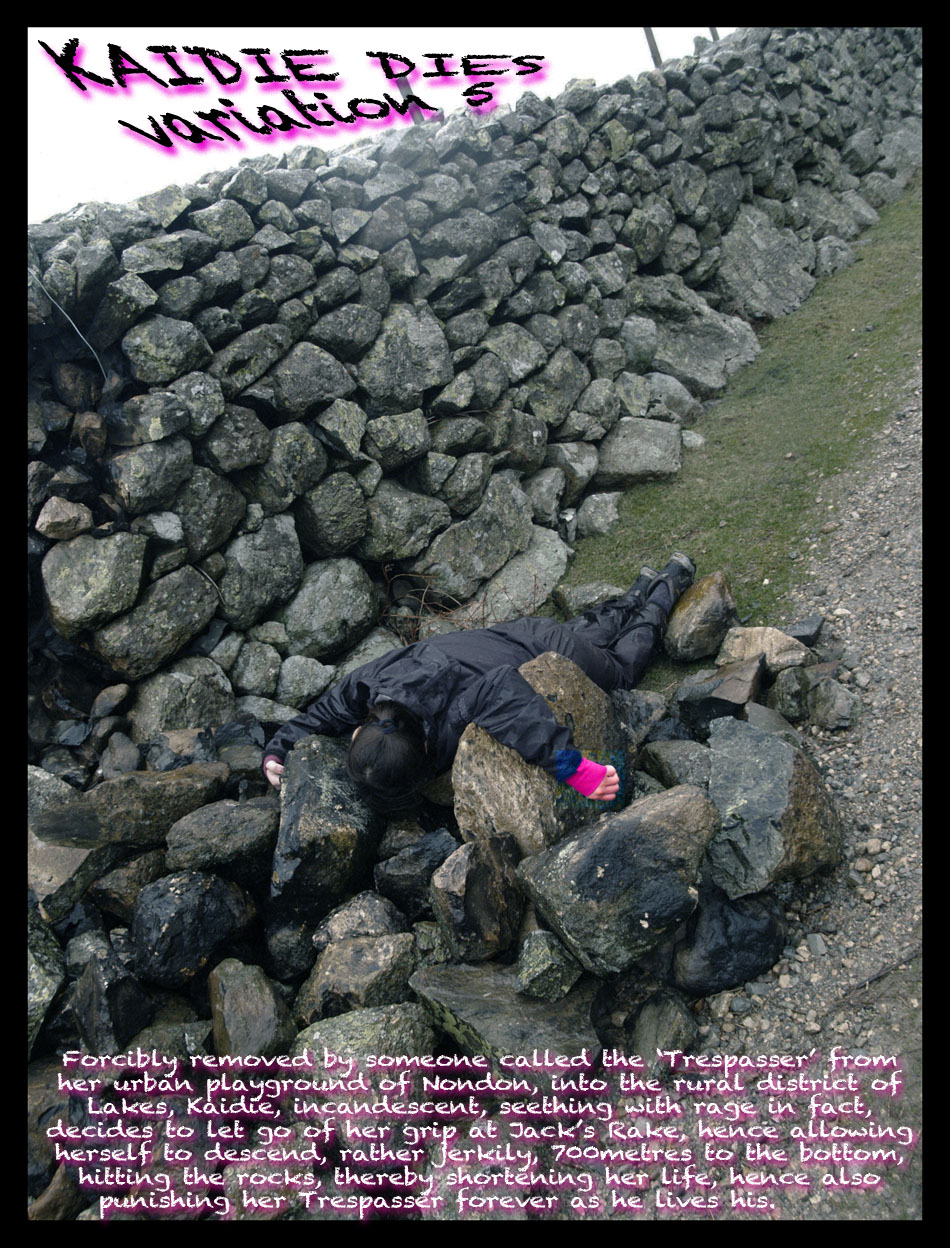
Photograph by the same Trespasser on his mobile phone after he drove Kaidie to an early grave, after he realised that Kaidie was gone, and when he saw Kaidie's corpse, and when he concluded that she was dead, and thereafter carried on with his walk at Jacks Rake, or is it Jake's Rack, while Kaidie continued with her own astral journey/journeys across dimensions.
CRUSHING DEATHS, CRUSHING LIVES: We seek not immortality (as if one lifetime is not more than enough!!) or happy afterlives (we yield not to bullying and blackmails by institutions); we fear not death, but life itself, and how we are living/running it.
As we run inter-dimensionally across Life 1.0 and Life 2.0, we run in the chaosmos of mortality and immortality. Traversing backwards and forwards between living-subject-to-death and never-dying, the inter-dimensional runner is able to get best of both worlds. In such a setup, life and death become a multidirectional circle. Living or running in such a circle, any existential angst can be extinguished: we live (each) life to the fullest and cease fearing death. Instead of mourning for the dead, we sing, as Zhuang Zi (Chuang-Tzu) did after the death of his wife. ‘If I were to follow after her bawling and sobbing, it would show that I don’t understand anything about fate.’[1] Zhuang Zi looked at his wife’s death as another stage of life, as a continuation from ‘the time before she was born’ (which itself was a stage after ‘the time before she had a body’, which was in turn after ‘the time before she had a spirit’.) For him, ‘just like the progression of the four seasons, spring, summer, fall, winter,’ death is merely ‘another change’. As Sinologist Norman Girardot explains, the initiatory symbolism of returning to the condition of either infancy or death echoes the cosmic return to the chaos condition.[2] In this mixed, third condition, infancy and death are ‘symbolically equivalent’. This is the Dao’s (Tao’s) creatio continua. When a man dies, ‘he goes to his rest, rises again to his zenith’. This ‘return to the beginning’ after our death is ‘the ultimate harmony’, and is the chaosmos of mortality and immortality that the inter-dimensional runner is able to enjoy.
Daoist (Taoist) expert Kristofer Schipper observes that these notions (life and death as circular, and death as transformation and renewal) are clearly embodied in Lao Zi (Lao-Tzu) himself, as well as the mythological circumstances of his birth. Across literature such as the appropriately-named Book of Laozi’s Transformation and Book of Endless Mutations of Laochun (another name for Lao Zi) and so on, the Old Master says: ‘I transform my body, passing through death to live again… I die and am reborn, and each time, I have a [new] body.’[3] True to form, Lao Zi is said to have gone through nine transformations before he was born, and was hence born already an old man. Yet another example of these ‘continuous mutations, this joyful changing according to time’s cycle and the nature of things’, is the story of how the ‘Old Child’ was an orphan free of baggage, knowing ‘neither parents nor children, neither lineage, nor country’, and ‘no tomb nor holy relics’.[4] In yet another version of the story of his birth, the ‘Old Lord’ was said to be ‘his own mother’. The theme of the juxtaposition of life and death is most poetically encapsulated in the version that says that Lao Zi’s mother died ‘[at] the sight of her offspring.’[5] In the ‘brief moment between birth and apotheosis’, it is said that the Mother ‘reveals to her child the secrets of the art of immortality, of that ‘Long Life’ which the Old Child has just experienced in his mother’s womb’. Where there was ‘neither birth nor death’, a complete cycle of the cosmos was accomplished.’ To the Daoist, death and life are but ‘2 phases of a cycle’, with an ‘alternation analogous to that of yin and yang’.[6] All the stories of Lao Zi’s birth point to the same thing: that the ‘organic round of life and death’ is but a ‘rite of passage’ that ‘constantly involves moments of growth and regression, security and danger.’[7]
Yet, even though death is not considered as an ‘ill’ in Daoism, but as ‘only one phase of the total process of human life in time’,[8] prominence is still placed on achieving a good quality of life before death. This is where the notion of yangsheng – the preservation of life and nourishment – returns. In fact, the emphasis is not only on a good journey before life, but a good long distance journey before death, with longevity and, as an extension of that, immortality as the aims of yangsheng. Indeed, Schipper goes so far as to say that it is legitimate to ‘link the classic works (the book of Zhuang Zi and the Dao De Jing [Tao Te Ching]) as do the Daoists themselves, to the search for immortality […].’[9] While there are mystical elements (as we have seen in the case of Lao Zi for instance, who was said to have lived for thousands of years), the Daoist concept of immortality is primarily focused on everyday reality, through real-life practices including medicinal science and physical exercise, as we have already established at the beginning of this Chapter. Hence, when we run inter-dimensionally, in the chaosmos of Lives, not only do we run to-and-fro the circle of life and death, we also ensure that, before dying, we run a good, long distance life.
[1] Zhuang Zi, ‘The Complete Works Of Chuang Tzu’, Terebess Asia Online (TAO), trans. by Burton Watson <http://www.terebess.hu/english/chuangtzu2.html> [accessed 13 January 2011].
[2] Girardot, N. J., Myth and Meaning in Early Daoism: The Theme of Chaos, Three Pines (Three Pines Press, 2009), p. 126.
[3] Schipper, Kristofer, The Taoist Body (University of California Press, 1994), p. 116.
[4] Schipper, p. 166.
[5] Schipper, p. 122.
[6] Schipper, p. 37.
[7] Girardot, p. 5.
[8] British biochemist and Sinologist Joseph Needham 1974, 77?84, quoted in Girardot, p. 5.
[9] Schipper, p. 15.
WE JOIN 40,000 TO RUN THE 2011 NONDON MARATHON ON SUNDAY! But NO, THIS IS NOT A RICHARD-BRANSON PRODUCT-PLACEMENT BLOG POST!
1) Running is an immensely popular sport today all over the world, since it can be done anytime, anywhere, and by nearly anybody. 2) Any marathon is a big gig/performance/show (a show of human determination, although nowadays marathons, and even triathlons is such an achievable feat that the genuinely fit ones go for and invent ever more ultra- and extreme races, in impossible landscapes, over impossible periods of time, etc, etc. 4) Nondon is an amazing stage to live/work/play/be (we’ve gone through this before) 5) The Nondon Marathon is a big show on earth alright (Biggest fundraising event on earth! 40,000 runners! Records to be broken The most scenic marathon routes! … …) 6) Nothing – no thing in this world today escapes the supermarket, corporatised treatment/makeover. 7) Richard Branson has never, ever been known to be subtle.
HENCE. Look at these images. Richard Branson’s Virgin has been running the Nondon Marathon in the past years. It’s a huge gig alright – a large advertisement for itself. Yes, do yell it loud and clear, in every which way possible, leftrightcentre, brand us and co-opt us into your game, your rules. Thanks Sir Richard. If the Nondon Marathon Expo at the Excel Centre (MILLIONS OF FIT [healthy] AND FIT [goodlooking] runners, lean and mean and powerpacked in lycra!) is just a small indication of what’s to come on Sunday 17 April at the Nondon Marathon, we are prepared to be even more branded (‘Virgin’ no less!), and be seen with even more products. ‘Pure’ as it is or can be, running, like any other activity today, can be coated in much gunk that threaten to make us forget why we run. (We are not being cynical and dismissing the good work that such a big gig does (raising much fund for charities for one, and we are running for a charity as well), but there are always questions to ask in any such large-scale hyped-up enterprises [Bono, Geldof et al]). It does not have to be like this- our last (and first!) marathon was a much smaller event. The Farnham Pilgrims Marathon in Surrey was quirky and intimate, highly praised by all runners of varying experiences, and was not dunked in excessive institutionalised/corporatised distractions. We have signed up for the Bath Half Marathon in March 2012 (provided if we live till then?), but there are certainly questions to be asked and issues to think about, with regards to the institutionalisation of running – an activity that is, for us, essentially an act of gentle anarchism, a personal act of resistance. It’s an interesting tension. In this day and age no one is not co-opted in one way or another, but the question, we suppose, is how we run (navigate, negotiate, manage) that tension (like we do many things in life, unless we are hermits living in caves). Before we become (hairy/smelly) hermits in caves, we scribble a message on the wall at the Expo. (Thanks ADIDAS!!!!)
UPDATE: THANKS TO MS CHUN WEE SAN, WE HAVE HIT OUR TARGET DONATION OF £1500! This is Wee San’s SECOND donation for our Nondon Marathon effort for Shelter, the homelessness charity! Wee San, an art teacher, has previously also supported our run for the Friends of Medecin Sans Frontieres! THANK YOU WEE SAN! We also want to thank Jackie Claxton for her support, even after we have reached our target! Having reached our target, we have slightly raised the bar to £1600, so keep your donations coming! Click some clicks here to donate, today! We will close our donation page 1 week after the marathon, on 24 April 2011 Sunday.
AFTER WEEKS OF PRE-RACE ANXIETY, SUPERCRAMPS, FORCEFEEDING BUT TAPERING, IRRITABILITY, WE ARE MORE THAN READY FOR OUR RUN. TO FIND OUT HOW WE HAVE DONE on 17 APRIL 2011 AT THE 2011 NONDON MARATHON, COME BACK TO THIS RUNNING BLOG IN A COUPLE OF DAYS. BUILDING IN 1 LOO BREAK (INCLUDING QUEUING UP – no we won’t do a Paula Radcliffe!) WE ARE HOPING TO COMPLETE OUR 42KM BY WEDNESDAY MORNING, OR, IF WE ARE OPTIMISTIC, TUESDAY EVENING. SEE YOU SOON(ER OR MUCH MUCH MUCH LATER)!
REVERIES OF A SOLITARY RUNNER III: following the footsteps of runner-writer Dr George Sheehan (1975)
The words of Dr George Sheehan resonate deeply in the world of running. Such a cult figure he is that his book titles include his name (not just On Running, but Dr Sheehan On Running, 1975 Bantam). As a (still relatively) new runner, we are beginning to read his work, and do enjoy his discussion of the relationship between running and writing – a topic that cult novelist Haruki Murakami talks at length in his What I Talk About When I Talk About Running. What we wish to highlight in this post is what he says with regards to the loneliness of a long distance runner, which echoes the laments of Rousseau and Qu Yuan in their flights, actual and metaphorical. While we do not agree with everything he says that is quoted here, we like his unapologetic approach, his assertion of his individuality (many [non-runners] will call this selfishness). His defiance and irreverence remind us too of the gentle anarchism of Lao Zi, whose renouncement of court duties and wanderings were tactics of resistance. Interestingly, we note that Sheehan was not quite solitary enough however to not give talk after talk (hence also establishing a cult following) – and to not have fathered not one but TWELVE children, an activity that we know requires more than one (unless there are scientific interventions, of course)…
Page 42:
Runners are solitary and cerebral rebels in silent and meditative protest against our modern ways.
A world composed solely of runners might be unworkable, but a world with them will be unliveable.
Page 44-45
There is a metaphysical lawlessness about running. The runner puts himself above law, above society. He is a law unto himself.
The runner follows no one’s law but his own. He cares for little but the workings of his own mind and body. He would, as one runner told me, rather give up his best friend than give up running. He cares even less for this institutions that protect and support him. He despises authority and, if anything, agrees with Auguste Comte, who wrote that participation in government is fundamentally degrading,
He further alienates those who see the crowd as carnival where everyone joins in, becoming one happy, amorphous glob. The runner is an ascetic. pleasure is painful to him. Singing and dancing and even talking to another human being are avoided at all costs.
When he runs on the roads, he is making a comment about life. He is, in effect, criticising the life-style of everyone who sees him. He may not want to do this, but he does. he is putting down those who smoke and drink and socialize and call everyone by their first name. He has given up on that world and those in it, and has gone inside himself. No wonder those who live by the rules, or live by community, feel threatened by him.
Seen this way, what happens to runners is the just wrath of a society pushed too far. Those who believe we should all be one, as citizens or brothers, see the runner as a loner who never will contribute to the common good. That, they say, is man’s real inhumanity to man. And they may be right. In this world, no one is innocent.
REVERIES OF A SOLITARY RUNNER II: flights with Qu Yuan and his beautiful suicide lament (3BCE)
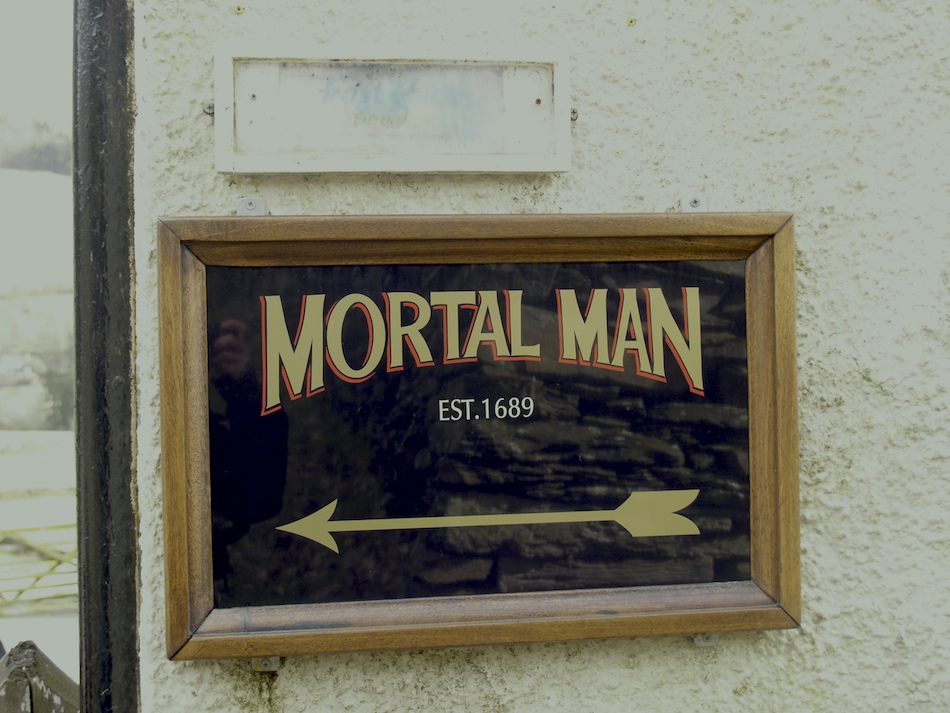
We seek not immortality - not even longevity (what for?), but a life lived to its fullest, every lifetime, each time we live it.
Qu Yuan’s description of his passage to death and beyond (3BCE) is simply one of the most beautiful passages we have ever encountered – the juxtapositions of internal turmoil with external journey, the spiritual and the tangible, the political and the personal, the metaphysical with the physical, the melancholic and the ecstatic, the extreme feeling of isolation and liberation, the unliving with being most alive – are so skillfully presented that the reader can not but feel happy (for the narrator) and heartbroken (for us, for there will be no more beautiful verses from him) at the same time. (Any experience that evokes 2 opposing emotions simultaneously – that the sublime embodies perfectly, with the interplay of the fearful and the awe-inspiring – is the most powerful experience for us). While we certainly cannot say that we fully agree with or understand it (with the multiple references to the religious/spiritual), Qu Yuan’s song hits us. According to Livia Kohn in her delightful The Taoist Experience: An Anthology, Later Printing (State University of New York Press, 1993), Qu Yuan’s The Far-Off Journey (Yuanyou) is ‘most classical of all ecstatic journeys in Chinese religion and literature’. In this song, the poet and official describes ‘a visionary journey that takes him from the sorrows bad afflictions of his unhappy life on earth through various physical practices and concentration efforts to the realm of the gods and immortals.’ Qu Yuan is of course renowned for eventually having thrown himself in sorrow into the Miluo River as a protest to the corruption of his government, the reason for many Chinese to mark the annual Dragon Boat Festival by throwing rice dumplings into the river from dragon boats in the futile wish that the fish would eat the dumplings instead of the tormented poet. Sensible 21st century beings that we are, we respect and enjoy the lovely story/legend/myth that makes Qu Yuan heroic and poetic, as much as we take it with a pinch of salt (as we wolf down the rice dumplings). At the same time, trans-dimensional runners that we are, we have 1 foot on the ground, and the other in cuckoo land, in blue skies; grounded and earth-bound as we are, we travel the world(s) (in spirit – whatever that might be? With more bags of salt? How heavy is that!?!) with the doomed anti-hero-fantasist-travellers, ala Don Quixote (Cervantes’ and Kathy Acker’s), Fitzcarraldo and Orlando. While Qu Yuan flies (and at some point of the song, GALLOP!!), we run, trans-dimensionally; while he seeks union / re-union with an ineffable force (the Tao), we dispel the notion of the existence of any convenient, centralised thing/being/institution; while he is disembodied, leaving his physical body behind, we run, embodied, burdened, with us, our physical, corporeal beings – which is the point, which is also the problem, the problem of our 1000-day troublesome endeavour, but the problem is very much the point. And, unlike Qu Yuan, we seek neither longevity nor immortality (as if one lifetime is not more than enough!?!). Yet, like Qu Yuan, and like Rousseau, we know, and we do, want to move on. Here, we reproduce Qu Yuan’s Far-off Journey (Yuanyou) from Kohn’s anthology (p. 251 – 257). Qu Yuan’s astral journey reminds us of that of the ancient Egyptian as we learnt at the British Museum at the wonderful Book of the Dead show, as well as the hauntingly beautiful paintings of Marc Chagall (so much so that we are compelled to pick up the brush and paint and canvas to paint [again]- although the production of paintings, of things, is is direct contradiction to our desire/purpose of wanting to not attach, to be free from burden, in our earthly travels and beyond…). The process of transcribing the translated text help us move closer to Qu Yuan’s mind, as he traverses the worlds, as every word comes off the page to the screen, from the poet to paper, from text in one language to another via the translator, from the translator to us, from us to you.
Saddened by the hardships of the common world,
How I wish to rise up and travel ways far-off!
My own strength is feeble; there is no support –
What could I stride on to float up and away?Encountering nothing but foulness and defilement,
I am alone and miserable – who could I talk to?
At night I lie restless, never sleeping,
My soul roving about till the approach of dawn.Thinking of the infinity of heaven and of earth,
I cry with the eternal toil of human life.
People of the past I cannot reach;
People of the future I will never know.Pacing with restlessness, I yearn to get away,
Confused and close to madness, I long for the eternal.
My mind goes wild, strays off without control;
My heart melancholy, I am ever sadder.Then suddenly my spirit, off, never to come back.
My body, like a withered tree, left behind alone.I look within, try to get back my grip,
To find the place where life’s energy arises:
All vastly empty and tranquil, there is serenity.
Quietly in non-action, spontaneous truth is found.I hear how Master Redpine cleansed the world’s defilements
And wish to follow the model he has left.Honoring the blessed virtue of the perfected,
I admire all who in the past have become immortal.
Taking off in a transformation, they were never seen,
While still their name and nature continue on and on.Oh, how Fu Yue went to live among the stars!
How Han Zhong Succeeded to realize the One!
Oh, for the body to slowly fade off in the distance –
To leave the human crowd behind, to vanish so completely!Oh, to follow the flow of energy, rising ever upward –
Swift as the spirit, wondrous as a ghost!
To see thaw rolled get hazy, look back from far-off –
All dazzling essence, flashing back and forth!Oh, to go away from all the dust to greater purity –
Never to turn back to old home!
To escape all the afflictions and never fear again –
None in the world knows how this truly is!And here I am, afraid of the passing of the seasons,
With every rising of the sun on its westward move.
A subtle frost descends, sinking ever downward,
I fear my fragrant freshness will fade all too soon.Oh, to leave it all for free and easy journey
Through years eternal that will never end!
Here, who would enjoy with me my remaining fragrance,
Walk, through the country air and share my depth with me?Gaoyang, my hero, is removed ever farther,
Where will this life, so lonely, lead me to?Then again, as spring and autumn hurry,
How can I always stay in my old home?
The Yellow Emperor cannot become my model,
But I can follow Jumping Wang to please myself.So I eat the six energies and drink the nightly dew,
Rinse my mouth with yang itself and swallow morning light.
Guarding the purity of the spirit light within,
I absorb essence and energy, drive out all that’s coarse.Wandering in the wake of the gentle wind,
I reach the Southern Nest without a single stop.
I meet with Master Wang and pause to speak to him,
Inquire about the harmony and virtue of the One.‘The Tao can only be received,’ he says,
‘It never can be given.
‘So small that has no within,
‘So big it has no bounds.‘No twists at all inside your soul,
‘And it will come spontaneously.
‘Focus on energy and open up to spirit –
‘Let them grow in you at the midnight hour.‘Wait for the Tao in emptiness,
‘Clear even of non-action.
‘All living species rise from this,
‘It is the Gate of Virtue.’Thinking of my dear old friends in my imagination.
I heave a heavy sigh and brush the tears away.
Slowly again I float, rising ever farther:
Suppressing now my will, keeping myself controlled.I point to the God of Fire and gallop straight to him,
Wishing to journey to the world’s southern end.
I gaze on wilderness beyond all known directions,
Float on and on over watery expanse.The Blessed Melter of the South stops me on the way,
So I go back by phoenix and visit the River Consorts.
They play the ‘Pool of Heaven’ and sing me ‘To the Clouds’;
Both ladies then perform the Nine Songs of Shao.Asking the Xiang goddesses to play their zithers for me,
I bid the Sea God dance with the River God.
They pull up water monsters ti step forward with them,
Their bodies coiling and writhing in ever swaying motion!Gracefully the Lady Rainbow circles all around them;
The Phoenixes soar up, stay hovering above –
The music swells ever higher, into infinity.At this point I leave to wander yet again;
With my entourage, I gallop far away.At the world’s far end at the Gate of Coldness,
I race the rushing wind to Clarity Springs.
I follow Zhuanxu of the North over piled-up ice,
Turn from my path to pass through Mystery Darkness.Striding on cosmic mainstays, I look back behind me,
Summon Qian Lei the Creator to appear,
To go in front of me on the level way.Thus I tour all four outlands,
Traverse all the six regions,
Up to the crakes of Heaven,
Down to the Great Abyss.Below just lofty openess, there is no more earth;
Above just empty vastness, there is no more heaven.I look but my vision blurs, nothing to be seen;
I listen but my ears are numb, nothing to be heard.Going beyond non-action, I reach the Clarity,
Become a neighbour of the Great Beginning.
REVERIES OF A SOLITARY RUNNER I: Following the footsteps of Rousseau and his final work, Reveries of a Solitary Walker (1776-1778)
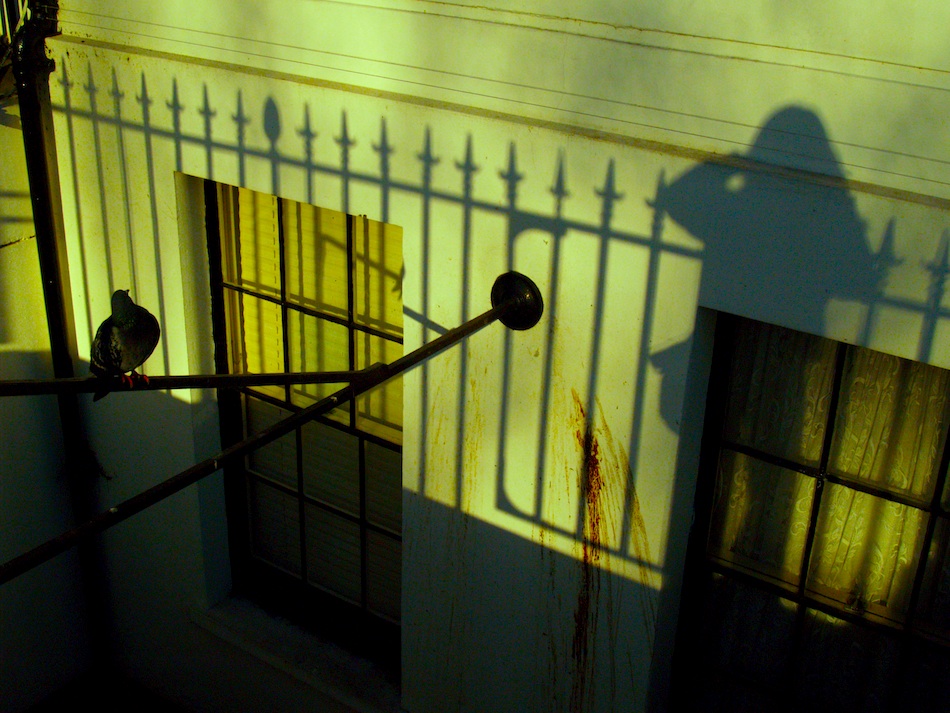
One of the images we collected in our solitary runs - a picture of peace and a fecal-matter-smeared wall and the defecator in Nondon.
The philosopher Jean-Jacques Rousseau wrote Reveries of the Solitary Walker (Les reveries du promeneur solitaire) between 1776-1778. When he died in 2 July 1778 at the age of 66, the work remained incomplete. The autobiographical series of essays is structured as 10 walks that Rousseau undertook in Paris alone. The work was written just after Rousseau ’emerged from the darkest passages of his life’ (says Peter France in the introduction to this 2004 Penguin edition, which we read at the Waterstones at Gower Street in Nondon one difficult midmorning), after many years of exile. During these final 2 years of his life, Rousseau felt misunderstood and unhappy. Rather than a work that is about walking, or has walking as a subject matter, Rousseau uses the act of walking as a medium, as a form, to express his final thoughts, before his death. Although Rousseau was not a runner, we identify with his sentiments as a solitary wanderer, and especially so in these unshiny days of ours. Bitter but at peace with himself (or rather resigned to his fate, whatever ‘fate’ might mean), Rousseau’s contemplations remind us of those of the other hermit-philosopher-poets, EM Cioran and Fernando Pessoa. We are also reminded of Viktor Sjostrom’s character in Ingmar Bergamn’s powerful Wild Strawberries (1957), who is also a bitter man looking back at his past, laden with regrets. While there is a salvaging epiphany at the end of the film/road-movie of sorts (and much quiet humour – Bergman or Scandinavian style, if we could say so? – throughout the film – some of which Woody Allen later played up), it is a nicely dark and murky. This is one of our favourite works of art of all times that continues to haunt us all these years and lifetimes, to our death(s). As Rousseau expresses in Emile (published 1762): ‘Every attachment is a sign of insufficiency […] A truly happy being is a solitary being.’ As we draft ours, Rousseau’s pre-death message in the Reveries of a Solitary Walker enables us to feel a certain delirium – as much as despair and desperation:
WALK 1
Everything is finished for me on earth. People can no longer do good or evil to me here. I have nothing more to hope for or to fear in this world; and here I am, tranquil at the bottom of the abyss, a poor unfortunate mortal, but unperturbed, like God Himself.
A recent event as sad as it was unexpected has finally extinguished this feeble ray of hope and shown me that my earthly destiny is irrevocably fixed for all time. Since then, I have resigned myself utterly and recovered my peace of mind.
…realizing eventually that all my efforts were in vain and my self-torment of no avail, I took the only course left to me, that of submitting to my fate and ceasing to fight against the inevitable. This resignation has made up for all my trials by the peace of mind it brings me, a peace of mind incompatible with the unceasing exertions of a struggle as painful as it was unavailing.
Even physical suffering would take my mind off my misfortunes rather than adding to them. Perhaps the cries of pain would save me the groans of unhappiness, and the laceration of my body would prevent that of my heart.
Actual misfortunes have little effect on me; it is easy for me to accept those which I suffer in reality, but not those which I fear. My fevered imagination builds them up, works on them, magnifies them, and inspects them from every angle. They are far more of a torment to me imminent than present; the threat is far more worse than the blow. As soon as they happen, they lose all the terrors lent to them by imagination and appear in their true size. I find them far less formidable than I had feared, and even in the midst of my suffering I feel a sort of relief. In this state, freed from all further fear and from the anxieties of hope, I shall learn from mere habit to accept ever more easily a situation which can grow no worse; and as my awareness of it is dulled by time they can find no further way of reviving it. So much good my persecutors have done me by recklessly pouring out all the shafts of their hatred. They have deprived themselves of any power over me and henceforward I can laugh at them.
Everything external is henceforth foreign to me. I no longer have any neighbours, fellow-men, or brothers in this world. I live here as in some strange planet on to which I have fallen from the one I knew. All around me I can recognize nothing but objects which afflict and wound my heart, and I cannot look at anything that is close to me or round about me without discovering some subject for indignant scorn or painful emotion. Let me therefore detach my mind from these afflicting sights; they would only cause me pain, and to no end. Alone for the rest of my life, since it is only in myself that I find consolation, hope and peace of mind, my only remaining duty is towards myself and this is all I desire.
WALK 2
These hours of solitude and meditation are the only ones in the day during which I am fully myself and for myself, without diversion, without obstacle, and during which I can truly claim to be what nature willed.
Today there is more recollection than creation in the products of my imagination, a tepid languor saps all my faculties, the vital spirit is gradually dying down within me, my soul no longer flies up without effort from its decaying prison of flesh, and were it not for the hope of a state to which I aspire because I feel that it is mine by right, I should now live only in the past. Thus if I am to contemplate myself before my decline, I must go back several years to the time when, losing all hope for this life and finding no food left on earth for my soul, I gradually learnt to feed it on its own substance and seek all its nourishment within myself.
The country was still green and pleasant, but it was deserted and many of the leaves had fallen; everything gave an impression of solitude and impending winter. This picture evoked mixed feelings of gentle sadness which were too closely akin to my age and my experience for me not to make the comparison. I saw myself at the close of an innocent and unhappy life, with a soul still full of intense feelings and a mind still adorned with a few flowers, even if they were already blighted by sadness and withered by care. Alone and neglected, I could feel the approach of the first frosts and my failing imagination no longer filled my solitude with beings formed after the desires of my heart. Sighing I said to myself: What have I done in this world? I was created to live, and I am dying without having lived.
Let men and fate do their worst, we must learn to suffer in silence, everything will find its proper place in the end and sooner or later my turn will come.
WALK 3
Secluded meditation, the study of nature, and contemplation of the universe force a solitary person to search with tender concern for the purpose in everything he sees and the cause of everything he feels.
When death is already at the door, is it worth learning how we should have lived?
The sad truth that time and reason have revealed to me in making me aware of my misfortune, has convinced me that there is no remedy and that resignation is my only course. Thus all the experience of my old age is of no use to me in my present state, nor will it help me in the future.
Since the days of my youth I had fixed on the age of forty as the end of my efforts to succeed, the final term of my various ambitions. I had the firm intention, when I reached this age, of making no further effort to climb out of whatever situation I was in and of spending the rest of my life living from day to day with no thought for the future. When the time came I carried out my plan without difficulty, and although my fortune at the time seemed to be on the point of changing permanently for the better, it was not only without regret but with real pleasure that I gave up these prospects. In shaking off all these lures and vain hopes, I abandoned myself entirely to the nonchalant tranquillity which has always been my dominant taste and most lasting inclination. I quitted the world and its vanities, I gave up all finery–no more sword, no more watch, no more white stockings, gilt trimmings and powder, but a simple wig and a good solid coat of broadcloth–and what is more than all the rest, I uprooted from my heart the greed and covetousness which gave value to all I was leaving behind. I gave up the position I was then occupying, a position for which I was quite unsuited, and set myself to copying music at so much a page, an occupation for which I had always had a distinct liking.
All the sharpest torments lose their sting if one can confidently expect a glorious recompense, and the certainty of this recompense was the principal fruit of my earlier meditations.
WALK 5
Everything is in constant flux on this earth. Nothing keeps the same unchanging shape, and our affections, being attached to things outside us, necessarily change and pass away as they do. Always out ahead of us or lagging behind, they recall a past which is gone or anticipate a future which may never come into being; there is nothing solid there for the heart to attach itself to. Thus our earthly joys are almost without exception the creatures of a moment; I doubt whether any of us knows the meaning of lasting happiness. Even in our keenest pleasures there is scarcely a single moment of which the heart could truthfully say: ‘Would that this moment could last for ever!’ And how can we give the name of happiness to a fleeting state which leaves our hearts still empty and anxious, either regretting something that is past or desiring something that is yet to come? But if there is a state where the soul can find a resting-place secure enough to establish itself and concentrate its entire being there, with no need to remember the past or reach into the future, where time is nothing to it, where the present runs on indefinitely but this duration goes unnoticed, with no sign of the passing of time, and no other feeling of deprivation or enjoyment, pleasure or pain, desire or fear than the simple feeling of existence, a feeling that fills our soul entirely, as long as this state lasts, we can call ourselves happy, not with a poor, incomplete and relative happiness such as we find in the pleasures of life, but with a sufficient, complete and perfect happiness which leaves no emptiness to be filled in the soul….What is the source of our happiness in such a state? Nothing external to us, nothing apart from ourselves and our own existence; as long as this state lasts we are self-sufficient like God. The feeling of existence unmixed with any other emotion is in itself a precious feeling of peace and contentment which would be enough to make this mode of being loved and cherished by anyone who could guard against all the earthly and sensual influences that are constantly distracting us from it in this life and troubling the joy it could give us. But most men being continually stirred by passion know little of this condition, and having only enjoyed it fleetingly and incompletely they retain no more than a dim and confused notion of it and are unaware of its true charm. Nor would it be desirable in our present state of affairs that the avid desire for these sweet ecstasies should give people a distaste for the active life which their constantly recurring needs impose upon them. But an unfortunate man who has been excluded from human society, and can do nothing more in this world to serve or benefit himself or others, may be allowed to seek in this state a compensation for human joys, a compensation which neither fortune nor mankind can take away from him.
WALK 6
I have never been truly suited for civil society, where everything is annoyance, obligation, and duty, … my naturally independent temperament always made me incapable of the subjection necessary to anyone who wants to live among men.
There are types of adversity which elevate and strengthen the soul, but there are others which depress and crush it; such is the one of which I am a victim. If there had been the slightest leaven of evil in my soul, this adversity would have fermented it to excess and driven me into a frenzy, but it only succeeded in reducing me to inactivity. Unable to do good to myself or anyone else, I abstain from acting; and this state, which is only blameless because I cannot avoid it, makes me find a sort of satisfaction in abandoning myself completely and without reproach to my natural inclination. No doubt I go too far, since I avoid opportunities for action even when I think nothing but good can come from them. But knowing that I am not allowed to see things as they are, I refrain from judging by the appearances my enemies give to things, and however alluring the motives for action may seem, it is enough that they have been left within my grasp for me to be sure they are deceptive.
I have never believed that man’s freedom consists in doing what he wants, but rather in never doing what he does not want to do, and this is the freedom I have always sought after and often achieved, the freedom by virtue of which I have most scandalized my contemporaries.
WALK 7
Seeking refuge in mother nature, I sought in her arms to escape the attacks of her children. I have become solitary, or, as they say, unsociable and misanthropic, because to me the most desolate solitude seems preferable to the society of wicked men which is nourished only in betrayals and hatred.
WALK 8
In all the ills that befall us, we are more concerned by the intention than the result. A tile that falls off a roof may injure us more seriously, but it will not wound us so deeply as a stone thrown deliberately by a malevolent hand. The blow may miss, but the intention always strikes home.
Since by the light of reason I could see nothing but absurdities in the explanations I tried to give for everything that happened to me, I realized that, as all its causes and operations were unknown and incomprehensible to me, I should ignore them completely, that I should regard all the details of my fate as the workings of mere necessity, in which I should not seek to find any intention, purpose, or moral cause, that I must submit to it without argument or resistance since these were useless, that since all that was left to me on earth was to regard myself as a purely passive being, I should not waste the strength I needed to endure my fate in trying to fight against it. This was what I told myself. My reason and my heart assented, yet I could feel that my heart was not entirely satisfied. Whence came this dissatisfaction? I searched and found the answer: it came from my self-love, which, having waxed indignant against mankind, still rebelled against reason.
WALK 9
Happiness is a lasting state which does not seem to be made for man in this world. Everything here on earth is in a continual flux which allows nothing to assume any constant form. All things change round about us, we ourselves change, and no one can be sure of loving tomorrow what he loves today. All our plans of happiness in this life are therefore empty dreams. Let us make the most of peace of mind when it comes to us, taking care to do nothing to drive it away, but not making plans to hold it fast, since such plans are sheer folly. I have seen few if any happy people, but I have seen many who were contented, and of all the sights that have come my way this is the one that has left me most contented myself.
…if my pleasures are brief and few in number, it is also true that when they come they give me an intenser enjoyment than if I were more used to them. I ruminate on them so to speak, turning them over frequently in my memory, and few as they are, if they were pure and unmixed, they would perhaps make me happier than in my days of prosperity. In extreme poverty a little is enough to make one rich; a beggar is gladder to find one gold coin than a rich man to find a purse full of money. People would laugh if they could see how my soul is affected by the slightest pleasures…
It is only when I am alone that I am my own master, at all other times I am the plaything of all who surround me.
Cycles of British Summer Times, cycles of growths of hair (and nostril hairs, and armpit hairs, and mould, and toenails, and teeth, and earlobes, and laugh lines, and tear lines, ley lines, hemlines): WHAT HAPPENS TO PEOPLE WHO HAVE NOT HAD A HAIRCUT FOR AN ENTIRE LIFETIME?
What happens to people who have not had a haircut for 470 days? They end up bushy and flustered, wishing an earlier death than the last day of the Nondon Olympics (09.09.2012) so that they can enjoy the catharsis of a purge of (the) burden (of excessive foliage). (To be sure, many things cease growing when one is dead, hair included.) (And, to be sure, we have had to trim our fringe/bangs every now and then (every 3 weeks, really) in the past 470 days- freeing our eyes from follicle curtains.)
After Tehching Hsieh.
PS: Happy British Summer Time. Goodbye wintry cloudiness. Hello sunny lucidity. Runnnnnnnnnnnnnnnnnnnnn.
PPS: WE ARE STILL TRYING TO RAISE MONEY FOR OUR RUN FOR SHELTER FOR THE 2011 NONDON MARATHON! DO LEND US A HAND! OR TOE! OR DOLE! OR DOUGH! IT’S THE FINAL LAP OF COLLECTION: WE ARE TRYING TO COLLECT THE FINAL £342! SO PLEASE HELP. Training-wise, we have been doing 35km (by looping around the Regents Fark, our favourite Fark in Nondon, swimming amongst the cherry blossom petals very poetically, smelling the roses, talking to the giraffes, kicking babies in their strollers and their parents blocking the pavements on their way to the overcharged zoo, performing our kungfu levitational-sidestepping of fecal deposits by horses, dogs and again the irresponsible and silly young parents, smiling back at fit cops and fellow runners (them probably trying to hold back their guffaws at the sight of our inelegant gait of wildly flapping arms and thundery steps – FEE! FI! FO! FUM!), making a gurning & constipated face at anyone else unfit, cursing & projectile-spitting at builders, fat middle-aged uglies and other uglies who make crass (insect-like? rat-like? try harder!) sounds or say crass things (‘Saucy’! ‘Slow down love!’) when we run by, looking ahead at the 2cm ahead of us, one step, at a time, for we are short and short-sighted), and are tapering down (AND CARBO-LOADING UP!!!!!!!!! YAYYYY!!! More chocolates please! And cheesecakes! And Moet! And Chandon! And roasted pecan nuts! And frothy cappuccino! And salmon!) for the next 28 days, before race-day on 17 April 2011 Sunday. We are terribly excited about the big day and hope to see you along the 42km scenic route – ON THE CONDITION THAT YOUR PRESENCE ADDS TO THE SCENERY! So, please do not come if you are ugly, or consider yourself aesthetically-challenged. Unless we run with hair as shown in the picture above, in which case you can look as you please and we will not be distracted. Which is why we do our hair like this, because we do not claim to be un-aesthetically-unchallenged. Forget it, please come, every body. Come together. Right Now. Over us. With us. Along us. Without our spectacles and with us Bolting so quickly in our splendid Shelter vest everyone will register as a blur. Wooosh. We are lying of course. We run about 2cm every 20 seconds. We do our best. Our mind is willing – more than willing. But, alas, our legs can only do that much. We are only that long. Or short. We have more excuses, of course – for instance a persistent painful protrusion on our left feet, tendonities on both legs when we are not careful, and so on. Nothing new. So. See you soon(er). Or later. See you around. And round. And in our next lives (will we recognise you better then? And vice versa??)
